“Pieczonka’s warm timbre was an inspiration to the listener, her voice’s earthiness and deep connection to text through tone was solid... Pieczonka proved her middle voice’s precision and showcased her voice’s best colors.”
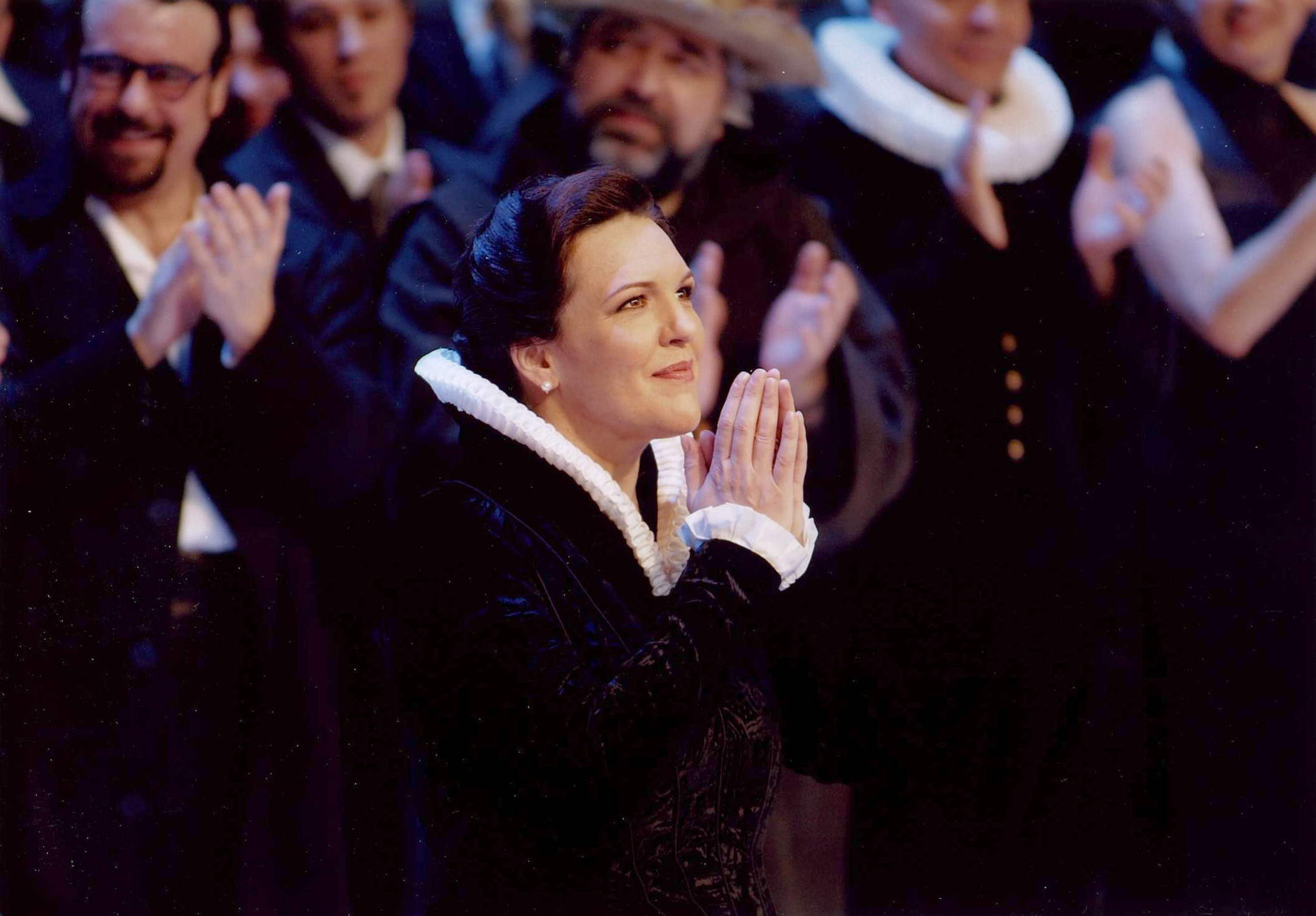
Press
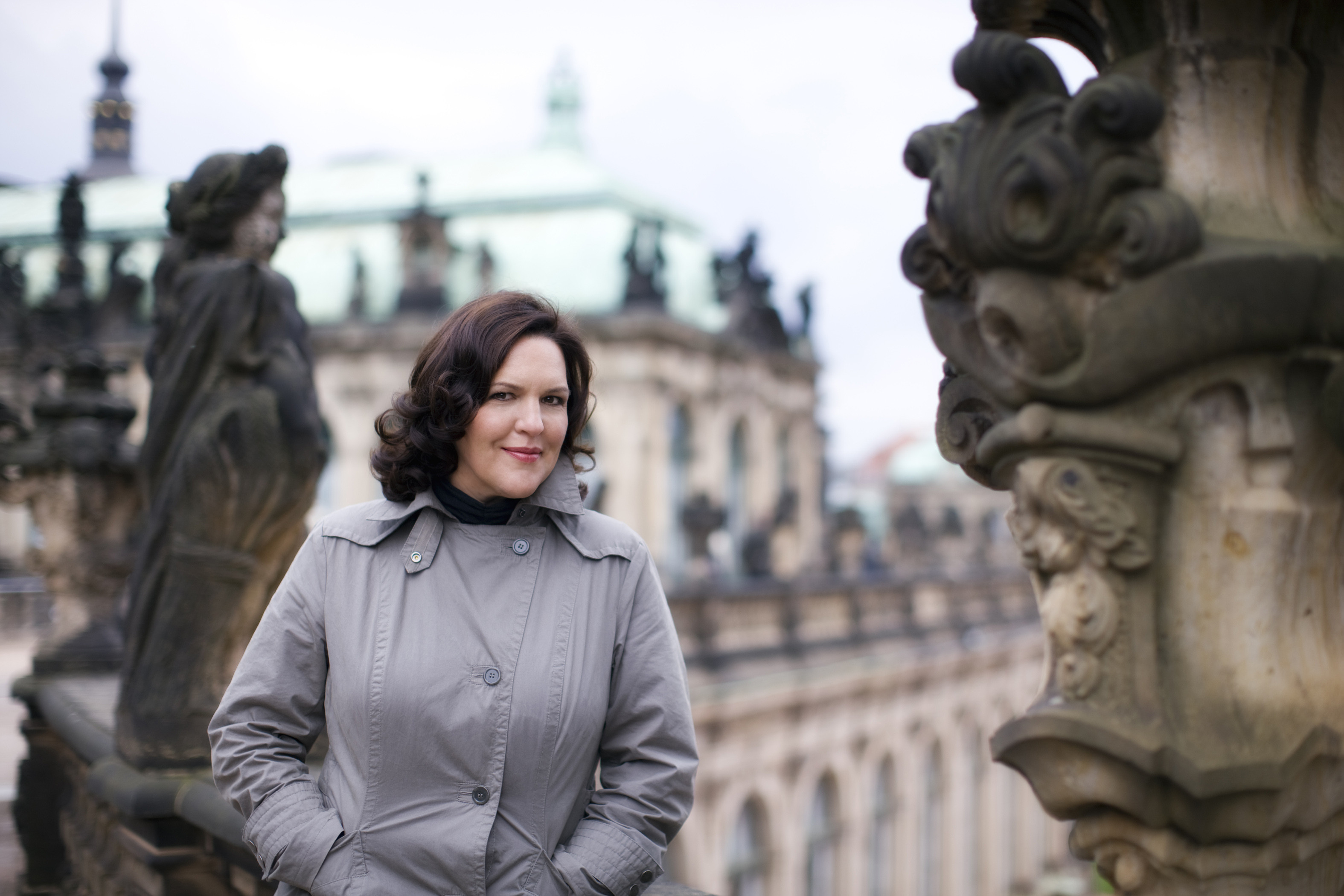
The Art of Vocal Longevity – Adrianne Pieczonka On Tackling Two of Her Most Difficult Operas, ‘Fidelio’ & ‘Elektra’
How do you maintain a dramatic soprano voice fresh? The answer isn’t always obvious for a singer of that voice type. These voices, prized for their sheer power and weight, often face the most difficult repertoire in the operatic canon, many of which can be damaging if sung too often.
“Adrianne Pieczonka’s soprano was exactly right...combining lyric freshness...with vocal weight... Her Marschallin was surely melancholy, but bore no self-pity...”
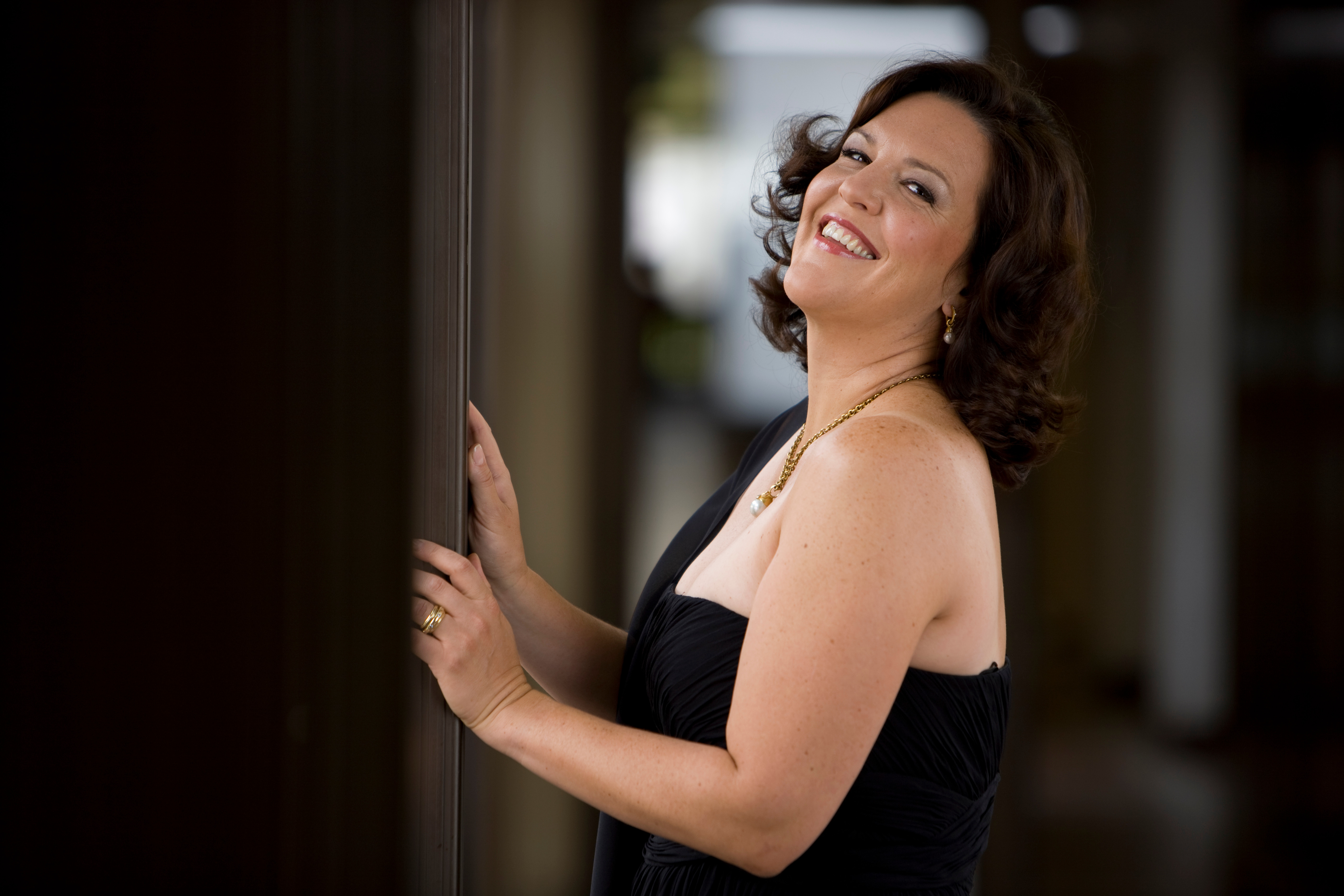
Die Winterreise: Adrianne Pieczonka’s Schubertian Journey
February 2017 is turning out to be a banner month for soprano Adrianne Pieczonka. On February 6th in a press release, Canada Post unveiled a set of five stamps celebrating opera in Canada, and Pieczonka’s image is on one of the stamps. Now, a week later, the Canadian soprano is marking another milestone by taking on the Mount Everest of song cycles, Schubert’s magnificent Die Winterreise in front of a hometown audience...
“Adrianne Pieczonka was an affecting and worldly Marschallin. During romantic moments she brought melting radiance to the music, but could also summon a weightier sound with just a glint of steel.”
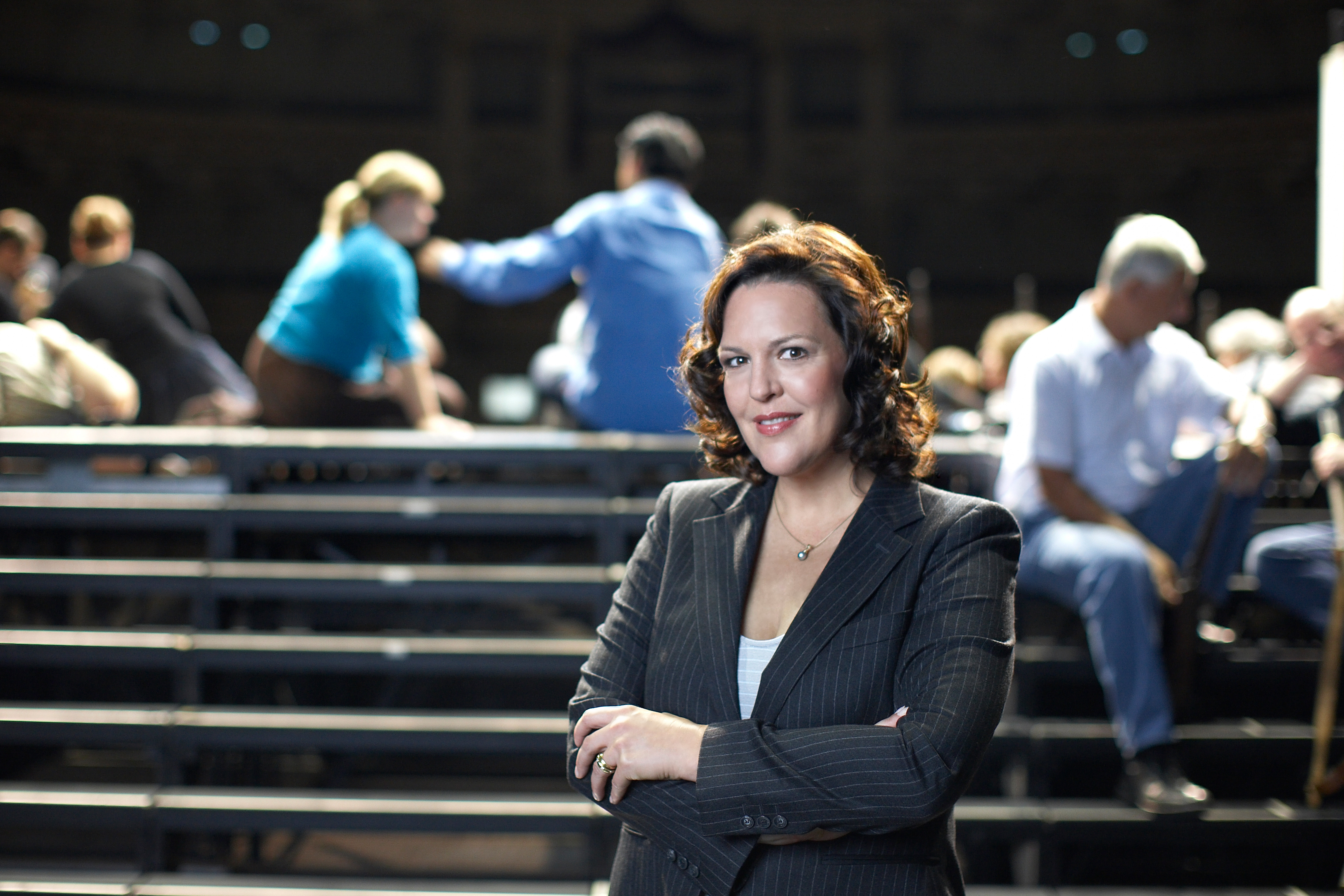
An ‘Elektra’ at the Met Inhabited by a Vital Spirit
Often my role, it’s a bit hysterical, that’s the word that comes to mind. She comes in, she’s the bearer of very dramatic news, she’s nervous. Maybe she gets on people’s nerves, a bit, with this hysteria. And he didn’t believe that. He felt she had a valid point.
“Adrianne Pieczonka’s Marschallin was largely free of artifice, having instead an appealing directness and simple elegance... Yet there was much nuance in her delivery of the text, and in purely vocal terms she was captivating.”
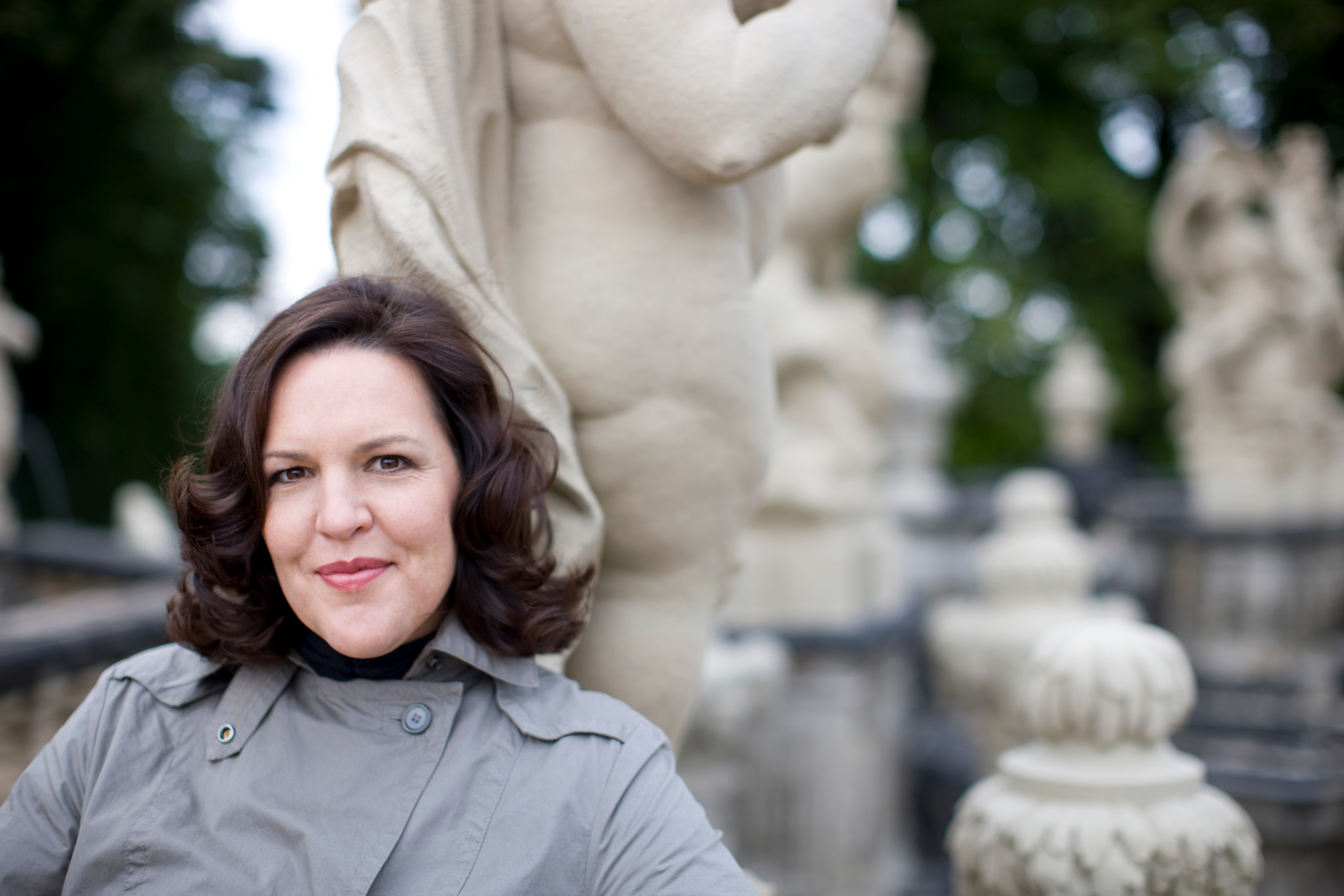
Adrianne Pieczonka's opera career honoured
Pieczonka is on the receiving end of a generous gift as the Ontario Arts Foundation names her recipient of the Paul de Hueck and Norman Walford Career Achievement Award. The announcement will be made Monday and the $20,000 award presented following the Canadian Opera Company’s Feb. 11 performance of Verdi’s opera A Masked Ball at Toronto’s Four Seasons Centre.
“Adrianne Pieczonka is absolutely mesmorizing in the title role. Here we have a soprano who has the lyrical qualities but also the ability to ride over the orchestra effortlessly.”
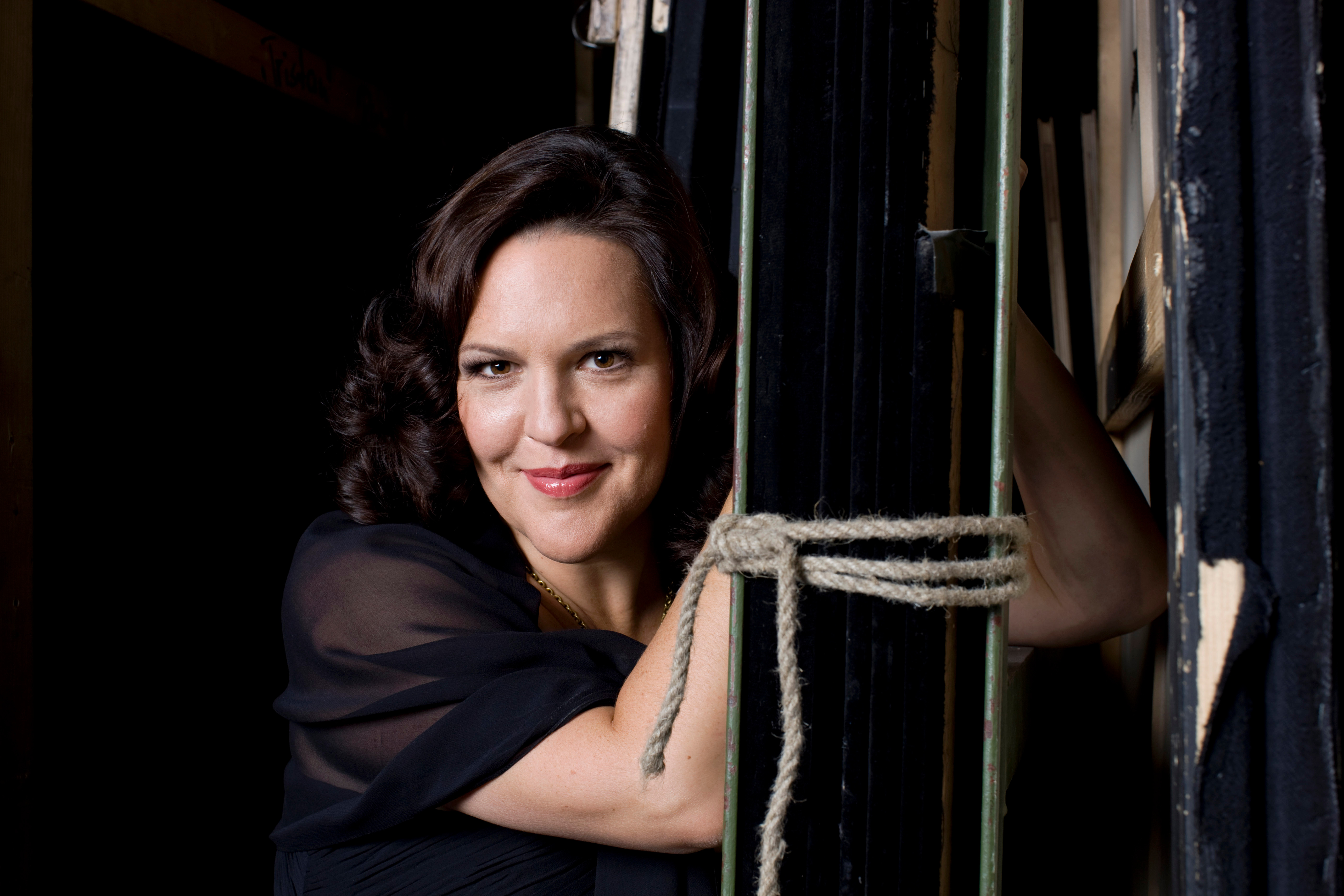
Adrianne Pieczonka, Canadian diva, is COC's Amelia
“I can’t believe I’m 50!” says Adrianne Pieczonka, the celebrated Toronto-based soprano who takes on the role of Amelia for the first time in Verdi’s A Masked Ball. The new Canadian Opera Company production opens Feb. 2 and runs for eight performances through Feb. 22. “Do I give in to my age?” she muses aloud. “Or do I eventually take on things that are more comfortable and less challenging -- that’s the big question.”
“Pieczonka's voice fits the part beautifully with the high notes ringing out to great effect.”
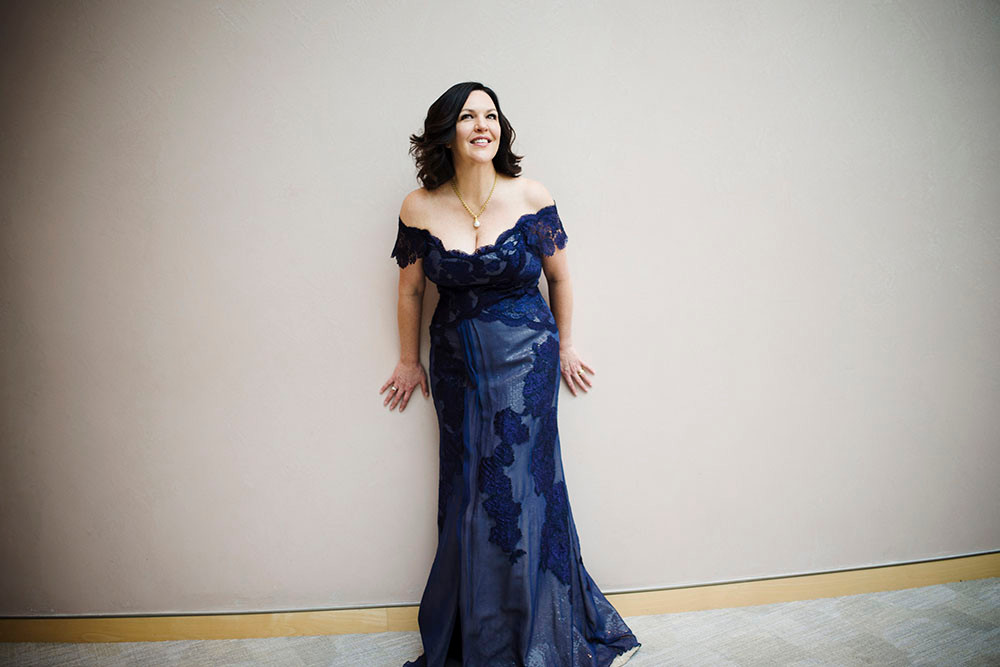
Canada's great diva: Adrianne Pieczonka
In anticipation of her role debut as Amelia in the Canadian Opera Company’s A Masked Ball, Prelude Magazine prepared a pictorial timeline from Adrianne’s early appearances at the COC to more recent performances.
“Pieczonka fills the space with ample vocal assurance drawn from her success in Wagner and Strauss and is fully abreast of the dramatic challenges whether expressing coquettish jealousy or cunning plotting against Scarpia.”
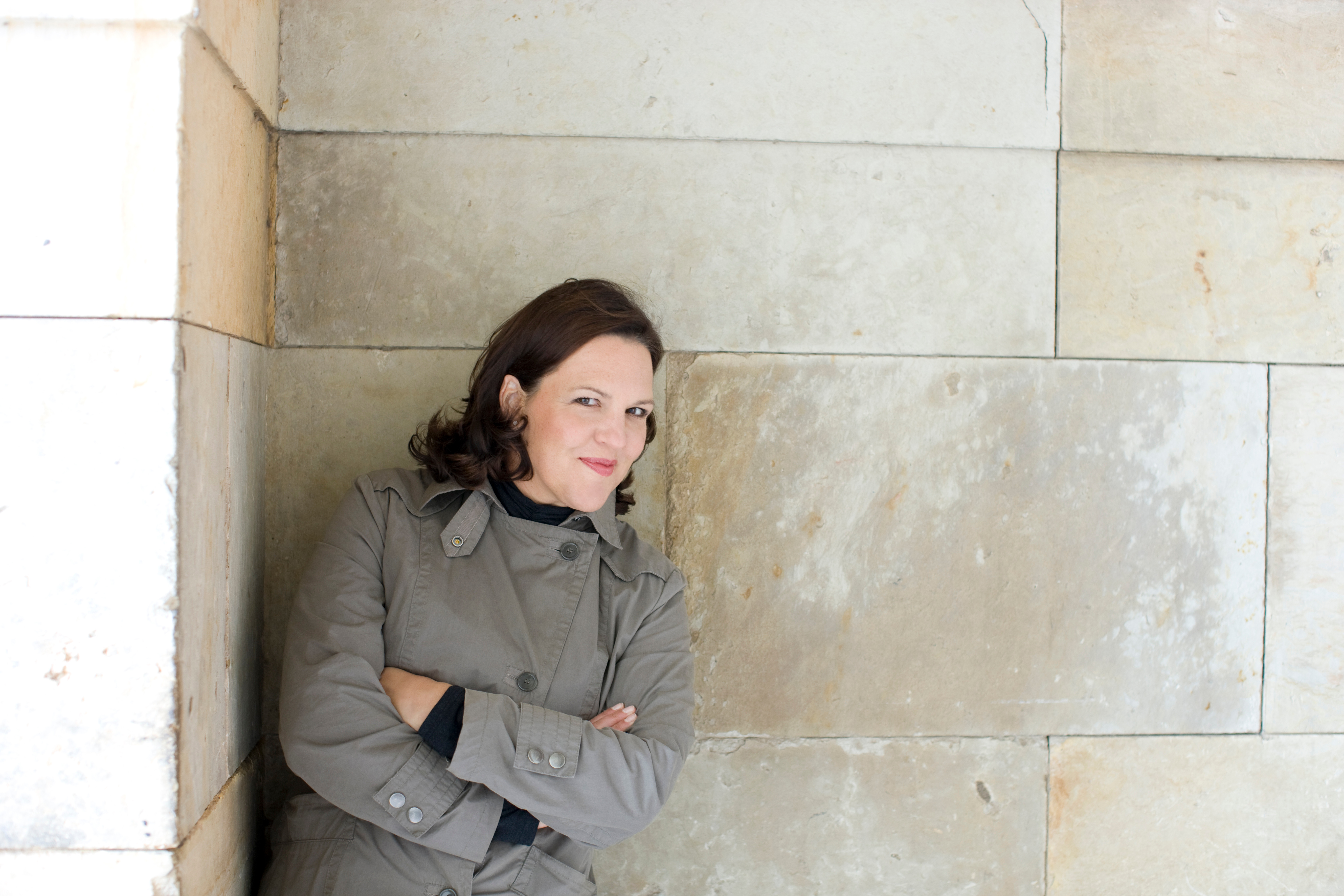
Bachman, Ezrin, Pieczonka honoured by Royal Conservatory of Music
Randy Bachman, Bob Ezrin, and Adrianne Pieczonka were named Honourary Fellows of The Royal Conservatory of Music on Wednesday night at Toronto’s Koerner Hall. At the Royal Occasion Gala, audience members were treated to performances by the internationally-acclaimed musicians.
“Pieczonka delivers an excellent performance as Tosca with razor sharp clarity.”
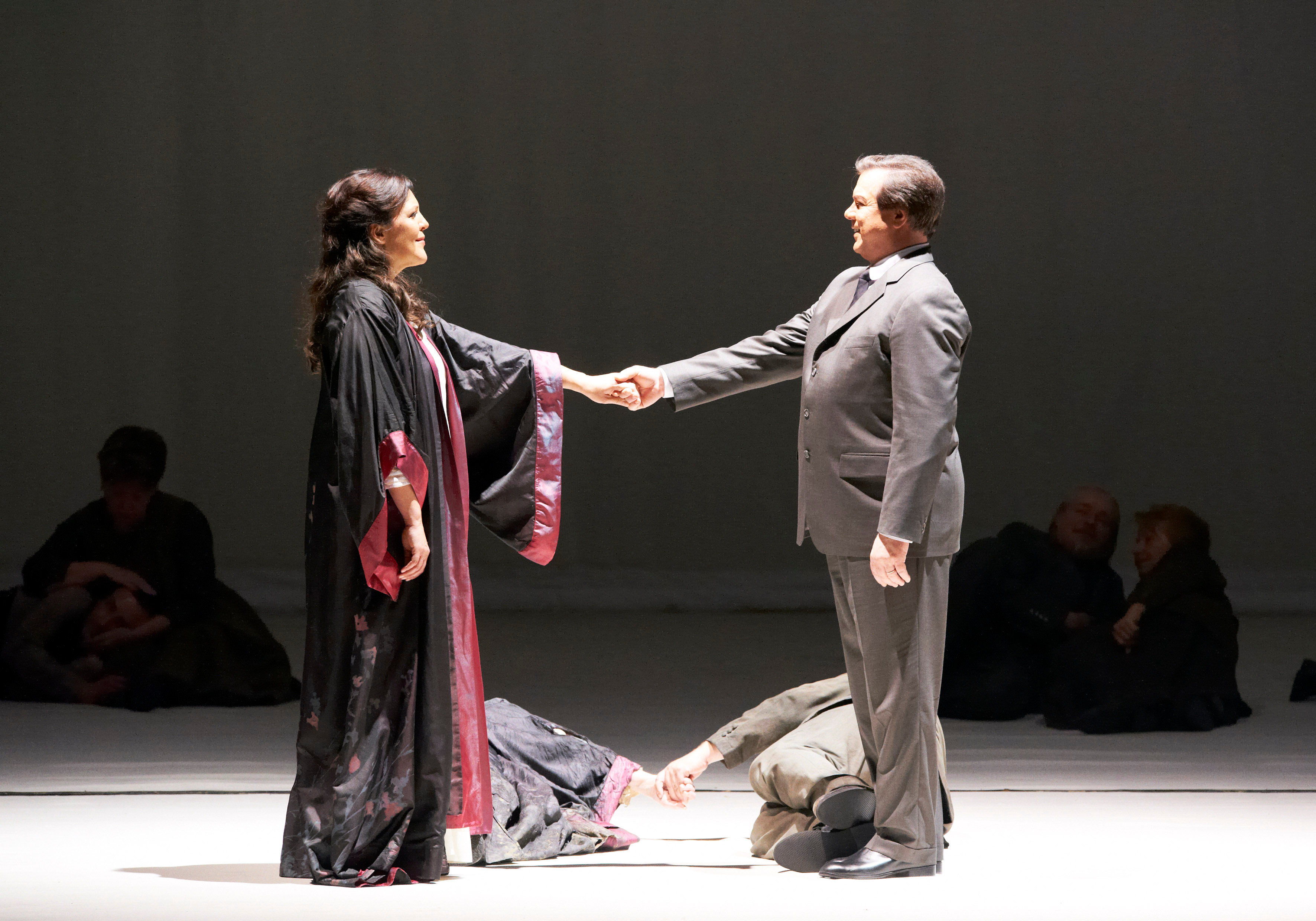
Royal Occasion Gala honours soprano Adrianne Pieczonka
Talking to Adrianne Pieczonka, you’d never realize she’s a star. Currently one of opera’s hottest commodities, the renowned Canadian singer has set stages alight around the globe with her shimmering soprano. Despite her celebrity status, the plainspoken Burlington, Ontario, native remains the textbook definition of down to earth.
“With her lavish clean-edged soprano, Adrianne Pieczonka achieves distinction in the title role.”
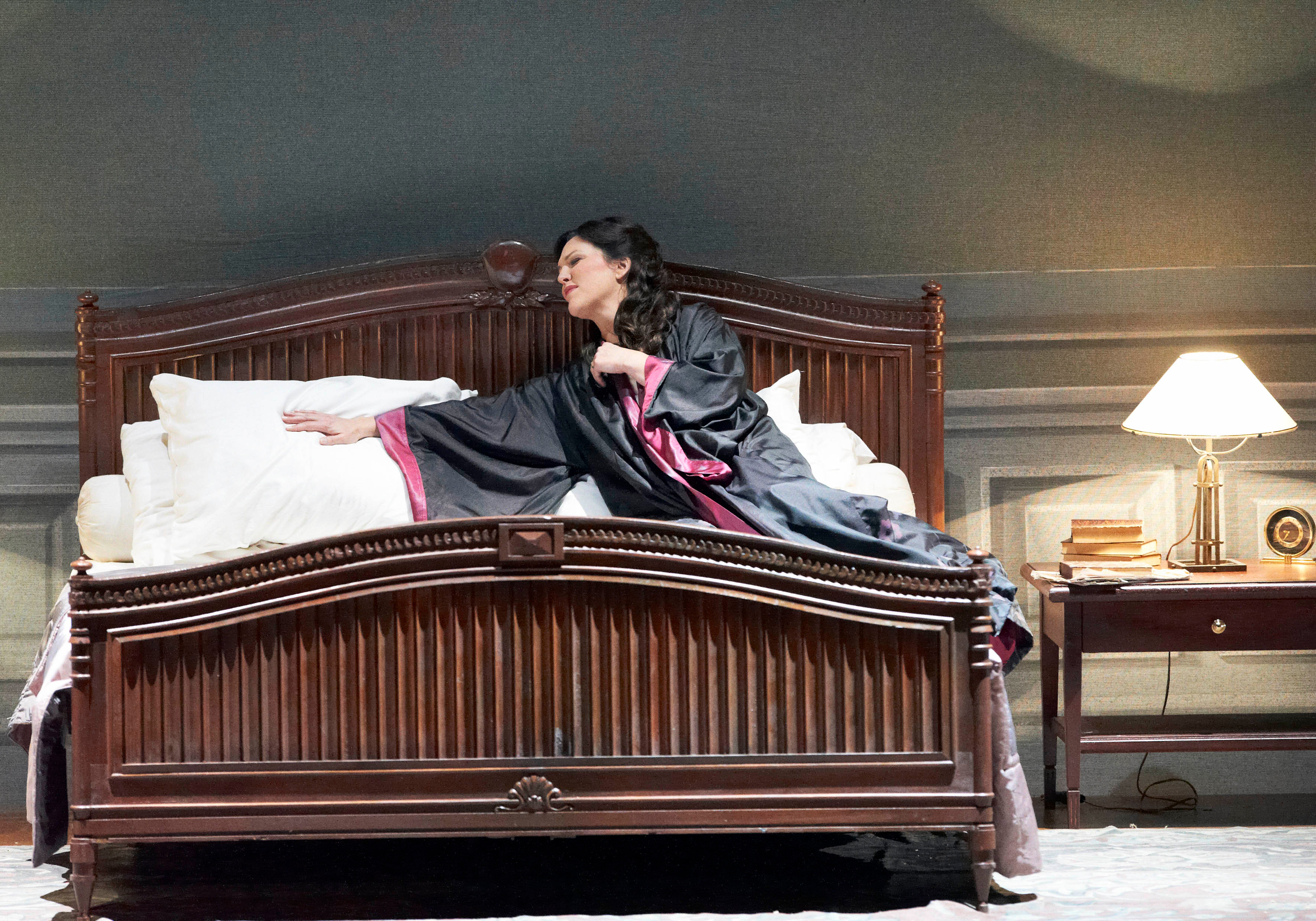
Adrianne Piezonka’s living room
It’s hardly surprising that the home of Adrianne Pieczonka is often filled with music. A decorated member of the Vienna State Opera who has been living in Toronto since 2005, Pieczonka shares the heritage-listed property in the city’s Annex neighbourhood with yet another opera singer, her wife, the mezzo-soprano Laura Tucker, and their daughter.
“Adrianne Pieczonka triumphs as the opera singer who fizzes with jealousy.”
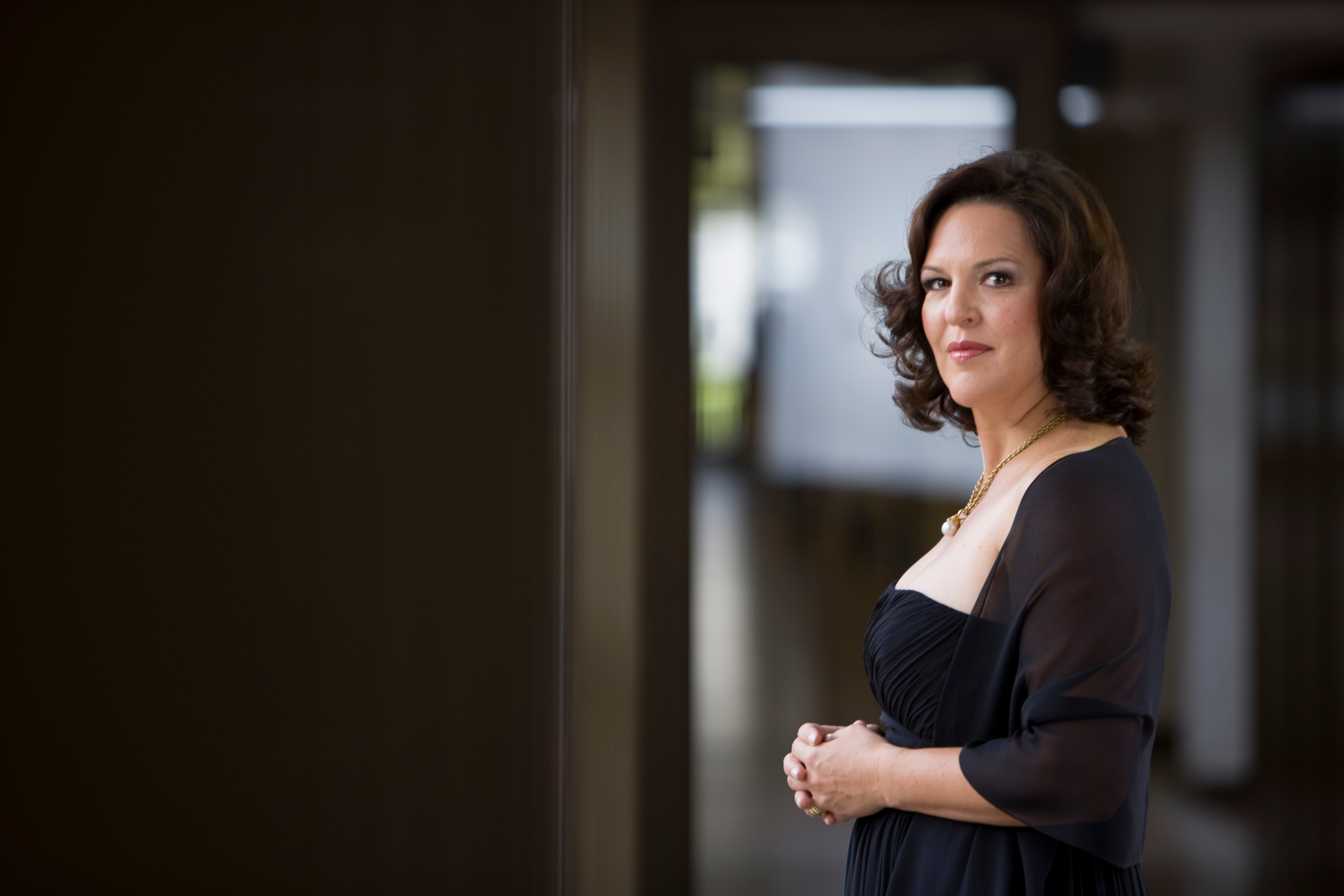
Another great opportunity for Adrianne to lose her head
Yet again, it’s going to be curtains for Adrianne Pieczonka. This time around, the Burlington-raised soprano will be losing her head at the guillotine as Madame Madeleine Lidoine, the second Prioress, in eight performances of Francis Poulenc’s 1956 opera, Dialogues des carmélites at the Canadian Opera Company’s Four Seasons Centre in Toronto from May 5 to 28.
“Adrianne Pieczonka is as perfect a Tosca as one could ever hope for. She sings the role with a full, round sound - her voice spinning with focused resonance, allowing it to fill the entire theatre. Pieczonka sings with such ease, her voice expressing everything from delicate devotion in her Act I "Non la sospiri, la nostra casetta", to the outbursts of desperation in her brilliantly performed, "Vissi d'arte".”
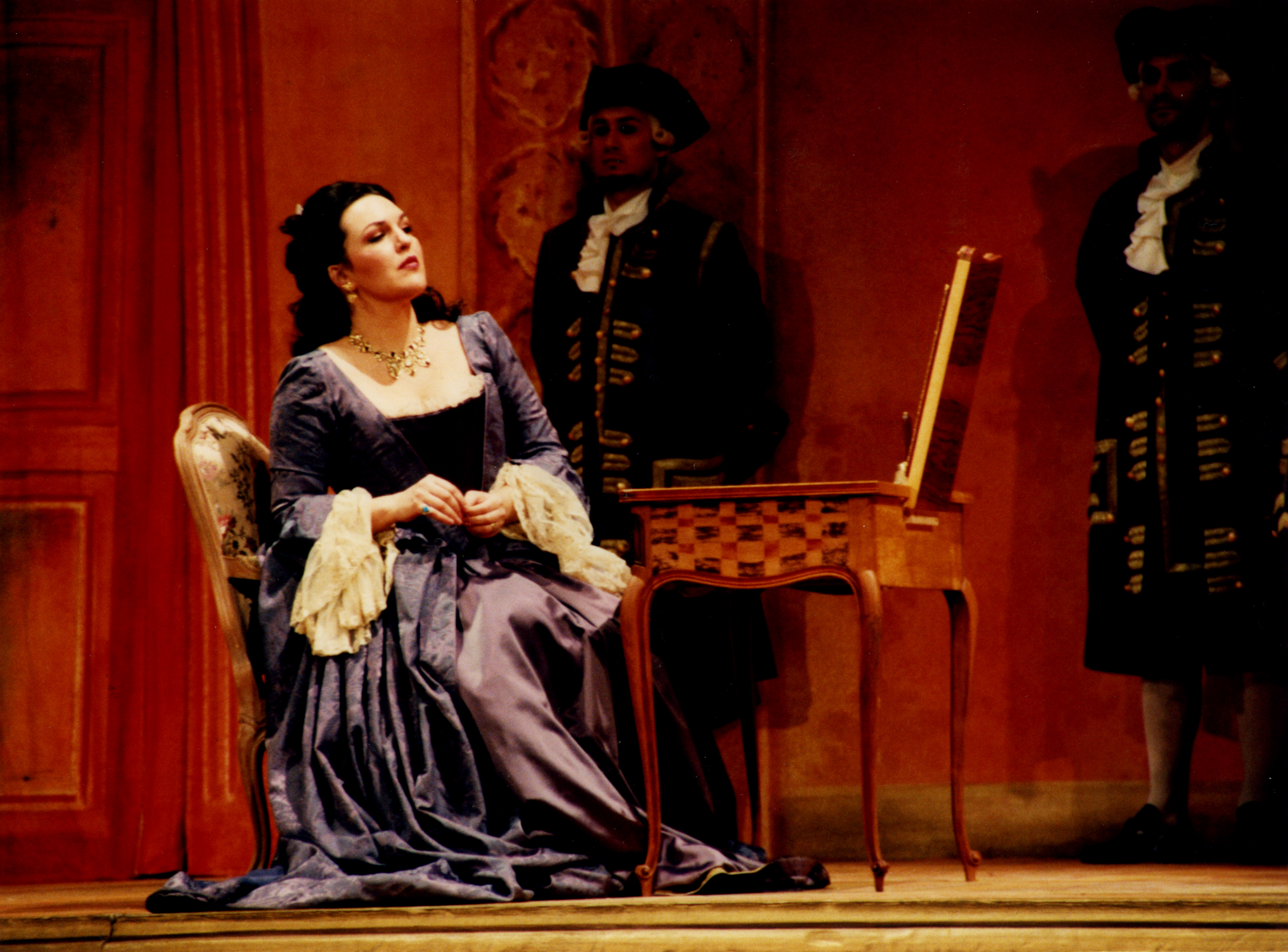
Adrianne Pieczonka comes full circle in Hamilton Philharmonic Orchestra fundraiser
Hard to believe, but it’s been almost a quarter of a century since Adrianne Pieczonka last sang with the Hamilton Philharmonic Orchestra. That would have been back on Feb. 18 and 20, 1988, the dates of Opera Hamilton’s gala 'Popera, Too' which had Daniel Lipton leading the HPO on a bill that also included, among others, John Fanning, Lyne Fortin, and Ben Heppner, all of whom would carve out distinguished careers on the operatic stage.
“Adrianne Pieczonka, who has sung the role all over the world, and was Tosca here in 2012, was glorious, with a fine, nuanced soprano that could overpower when necessary, or modulate down to a more moderate size, as she did with aplomb in her famous act-two aria, Vissi d’arte… Pieczonka’s vocal performance was very complex and layered.”
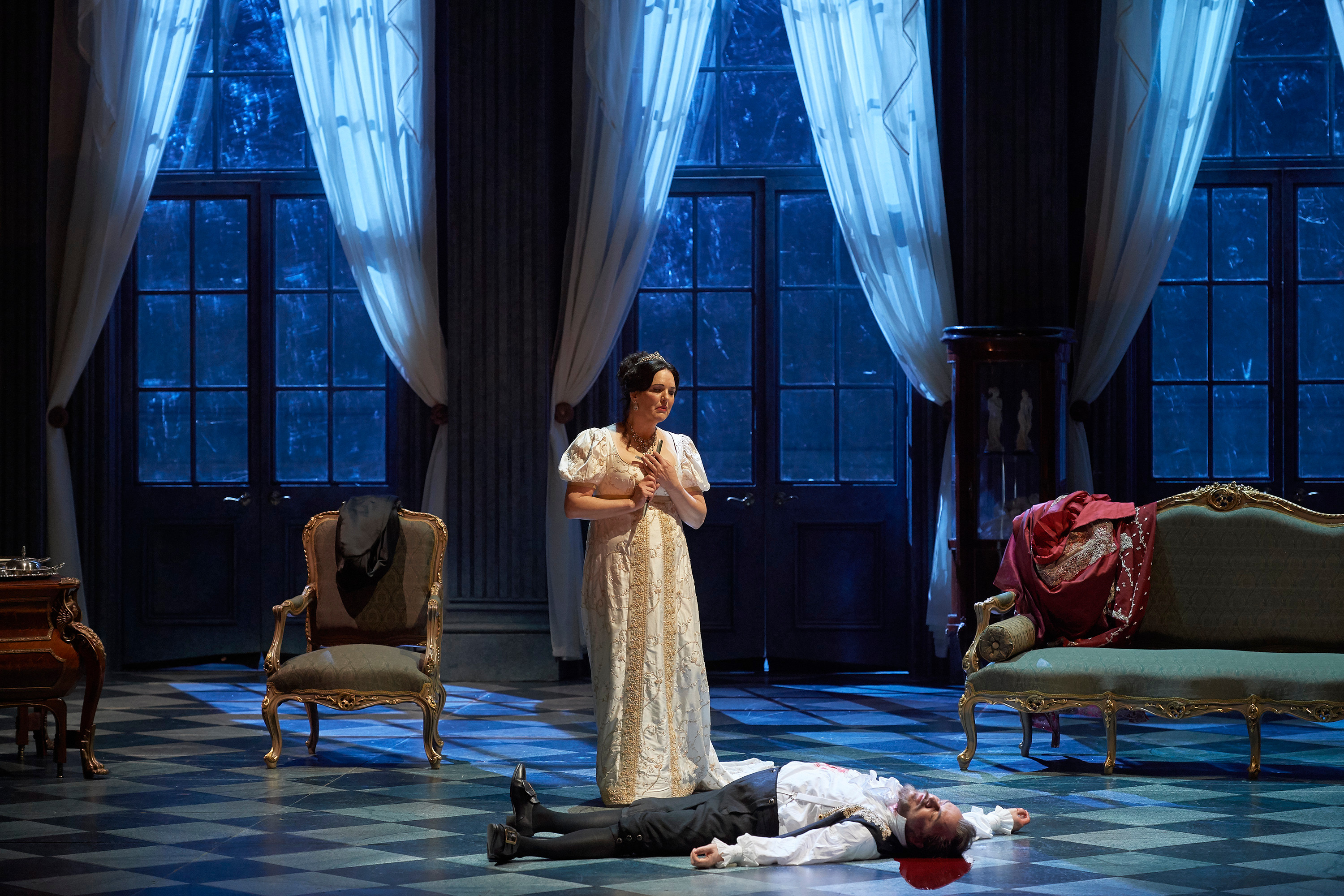
Western grad finally collects earned degree
Back on campus to be honoured Friday, opera star and Western music grad Adrianne Pieczonka was looking back and gazing ahead. Pieczonka received an honorary degree — Doctor of Music, honoris causa (D.Mus.) — at Alumni Hall as part of Western’s 300th convocation this week.
“Ms. Pieczonka, last heard at the Met as Chrysothemis in the searing new production of Strauss’s “Elektra” a year ago, brings an affecting blend of emotional vulnerability and valiant determination to Leonora. Her ample, gleaming voice gave lift and body to the arching phrases of “Abscheulicher!” (Monster!), the dramatic recitative and aria in which Leonora curses Pizarro, the prison governor, and steels herself to somehow rescue her husband.”
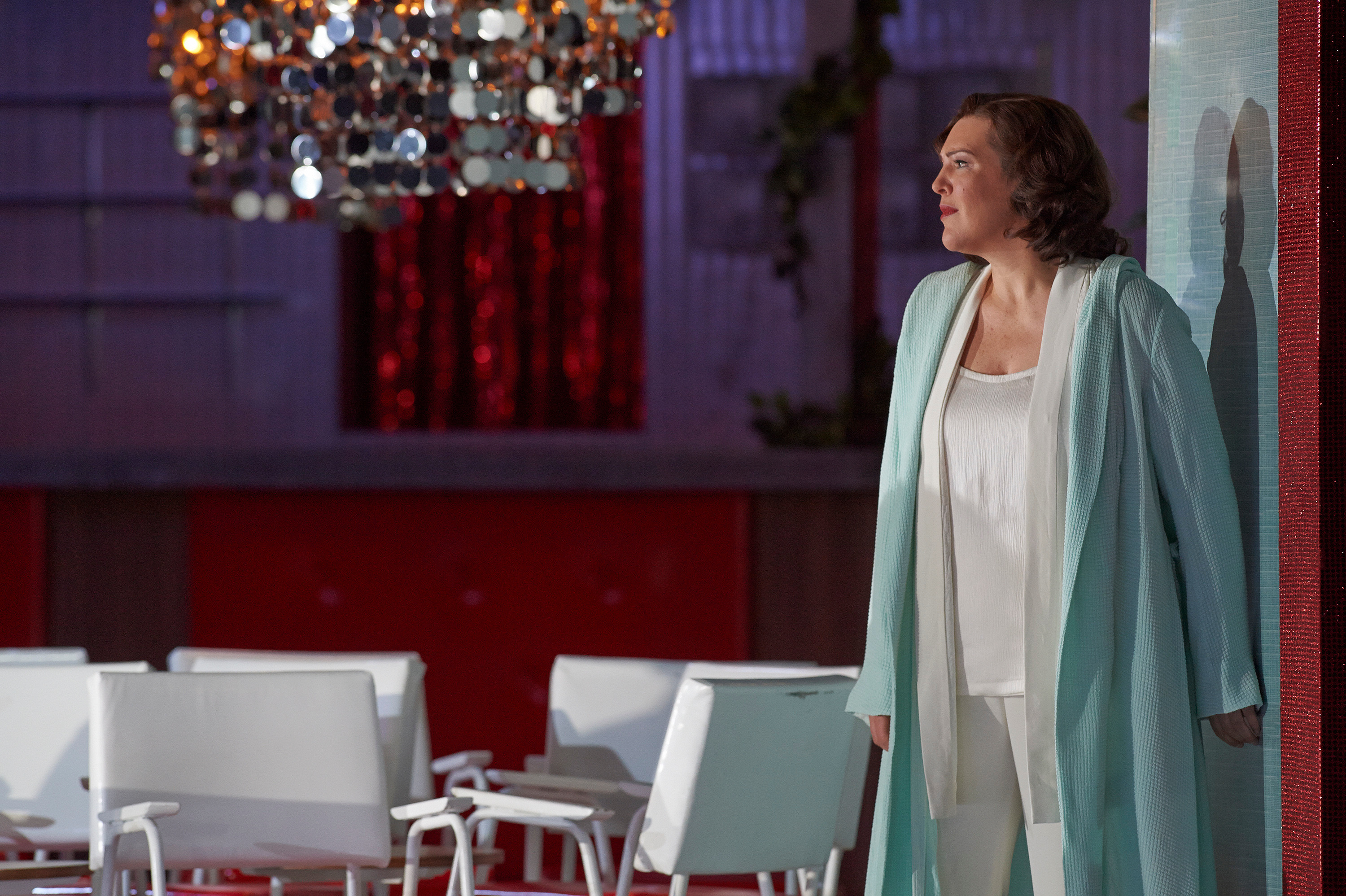
Ein Highlight: Bayreuths neue Senta im exklusiven Interview
Adrianne talks about her upcoming role as Senta in the Bayreuth Festival’s New Production of Wagner’s Der Fliegende Holländer conducted by with Christian Thieleman in an interview with Das Opernglas magazine (in German).
“As Leonore, the young woman who poses as a prison guard named Fidelio in order to free her husband, Adrianne Pieczonka gave a committed performance, showing an amber glow to her soprano. Act I’s “Komm Hoffnung,” was among the evening’s vocal highlights, a heartfelt lover’s plea that alternately sighed and thrilled.”
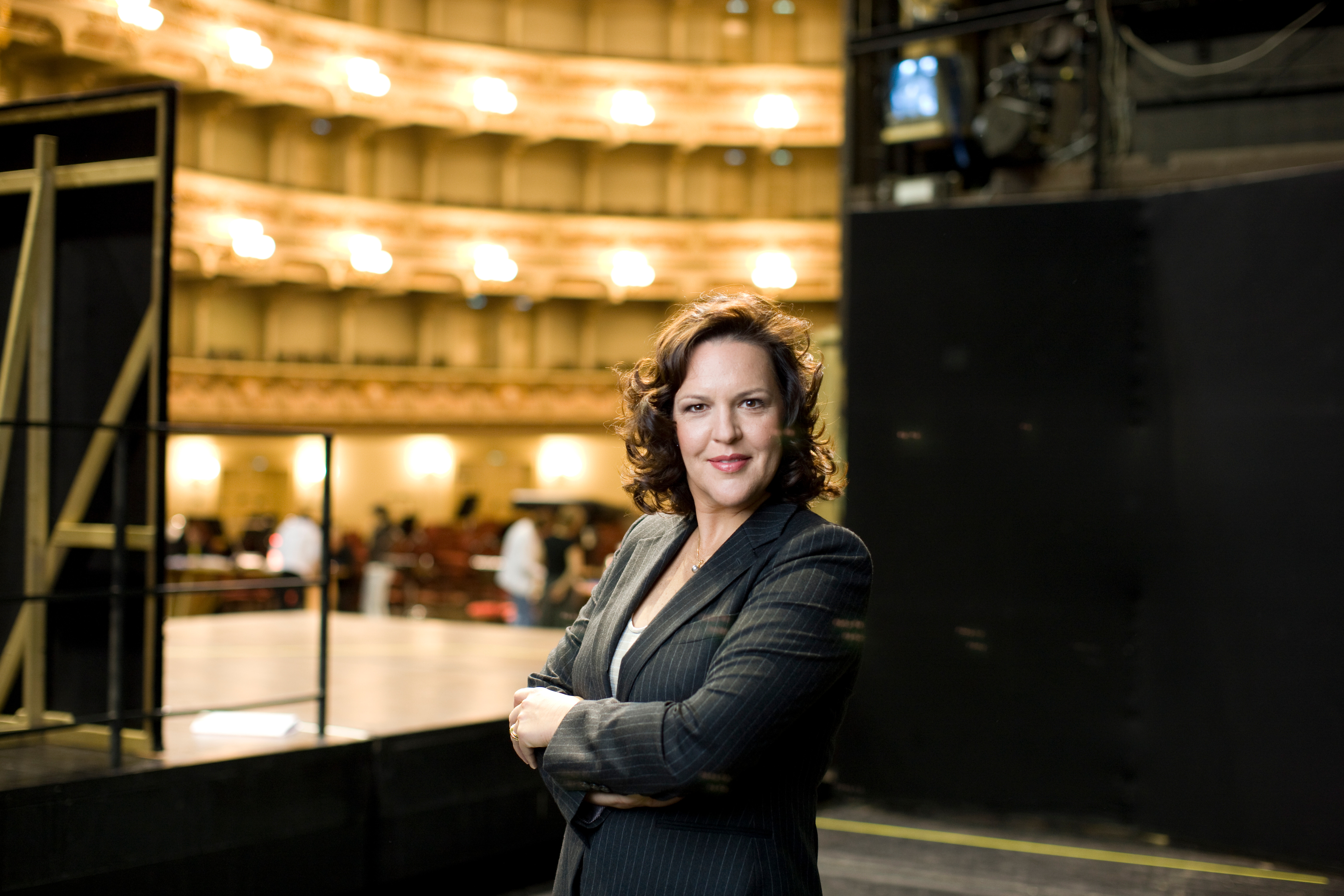
Liebeslied, Liebesfreud: Die Kanadieren Adrianne Pieczonka freut sich auf eine ganz besondere Senta
Adrianne talks about her upcoming role as Senta in the Bayreuth Festival’s New Production of Wagner’s Der Fliegende Holländer conducted by with Christian Thieleman in an interview with the Nordbayerischer Kurier (in German).
“Adrianne Pieczonka’s Chrysothemis is outstanding; assertive and dramatic, her voice assured, committed, beautiful and energetic at the same time… She is totally convincing, with wonderful accuracy and understanding of the text and the play. She is irreplaceable today where it is not easy to find a Chrysothemis who can sustain the role.”
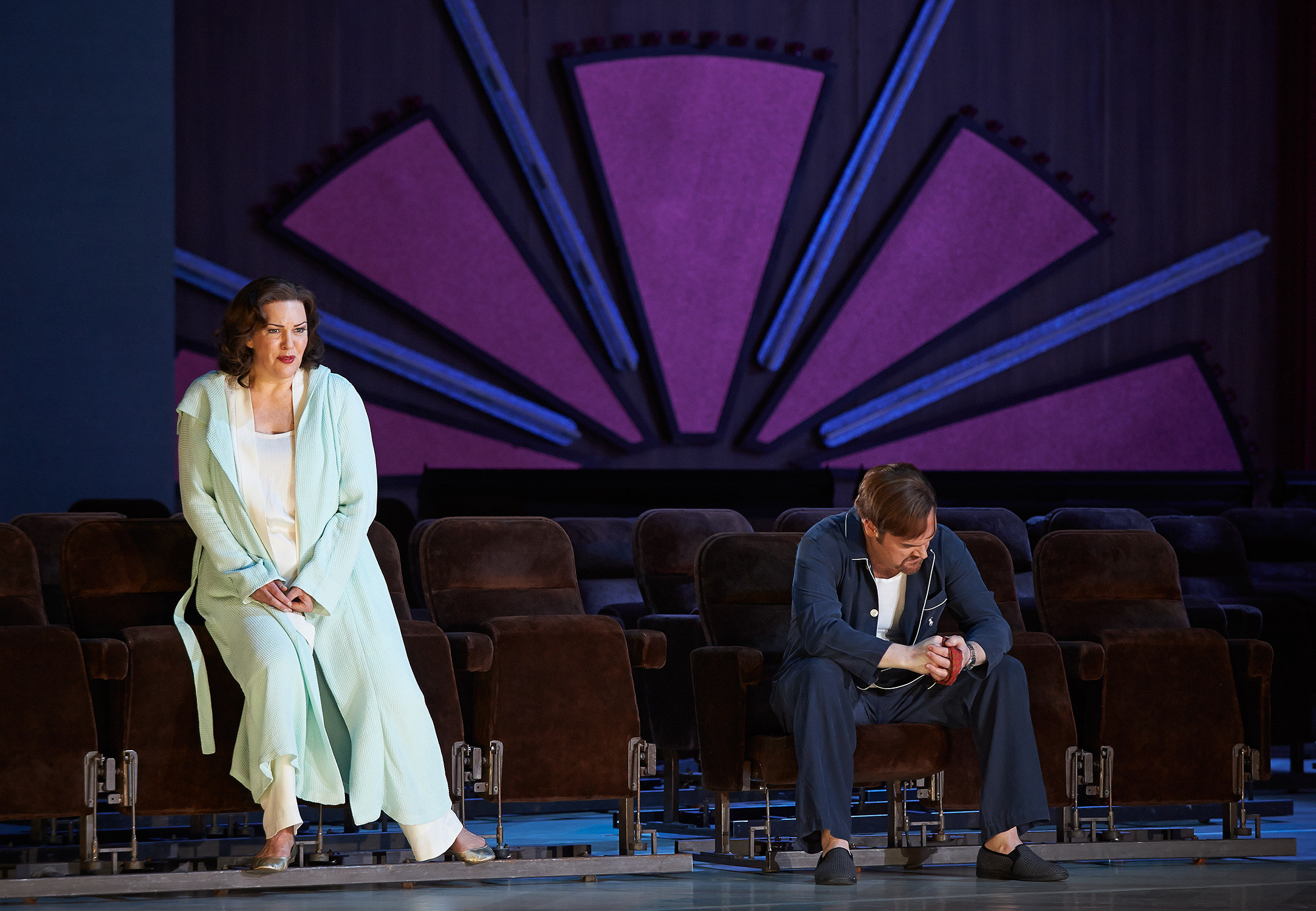
Die Oper wurde ihr Schicksal
German magazine Die Bühne asks Adrianne about her role as Elisabeth de Valois in the French version of Verdi’s Don Carlos being mounted at the Vienna Staatsoper.
“Her voice is rich and warm...and sings with an intensity that makes one wonder whether she might be an Elektra of the future.”
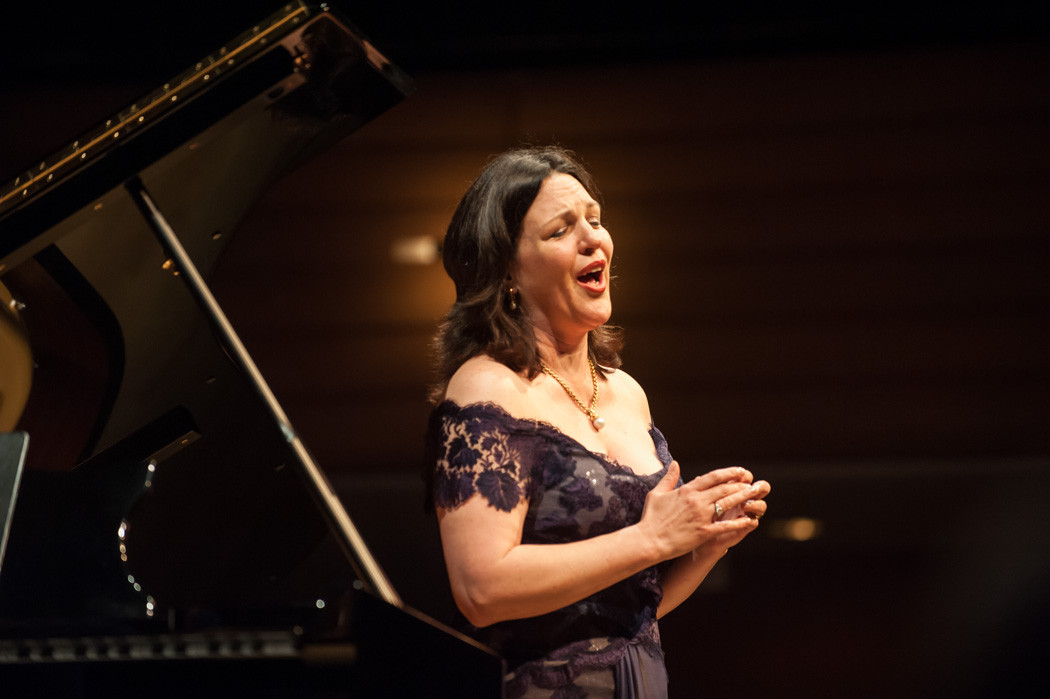
What do you say, Adrianne Pieczonka?
Read a Q&A with Adrianne in Toronto’s The Grid in which she discusses her upcoming role as Tosca at the Canadian Opera Company, and chats about tabloid operas, weird voice-protection techniques and getting away with murder -- onstage!
“...she sang with thrilling fearlessness.”

I Want Your Job: Adrianne Pieczonka
There’s a certain stereotype associated with female opera singers—particularly soprano leads—that conjurs up a particular four-letter word that starts with ‘D,’ ends with -va, and comes accompanied with a nose wrinkled in distaste. It’s a convention that internationally renowned opera soloist Adrianne Pieczonka graciously debunks.
“Ms. Pieczonka’s rich, clear voice conveys Chrysothemis’s affecting vulnerability.”

A home date at last for our Pieczonka
“Soaring.” “Luminous.” “Clear, shimmering, pitch-perfect sound and lovely phrasing.” Opera critics and audiences in New York, Paris, Vienna, Munich, Houston, Bayreuth and beyond have been raving about Adrianne Pieczonka. In the prime of her career, Pieczonka is widely regarded as one of the world's finest interpreters of Strauss and Wagner's grand operas.
“Adrianne Pieczonka defined Chrysothemis’s moral frailty with musical and histrionic precision.”

Opera House: Ariadne auf Naxos soprano Adrianne Pieczonka sings the praises of her family’s Annex home
Singing with such stars as Placido Domingo and Canadian tenor Richard Margison are high points for Adrianne Pieczonka, who grew up in Burlington, never dreaming she would perform duets alongside such luminaries. Though there’s always an adrenalin rush performing at the world’s operatic centres, the greatest joy the acclaimed Canadian artist says she now gets is coming home and unwinding with family in her Annex Victorian.
“As her sister Chrysothemis, Adrianne Pieczonka was equally brilliant, providing a grounded counterweight to Elektra’s turmoil…she sang with tremendous urgency and managed some terrific legato singing in a persuasive, earnest account of her monologue ‘Ich kann nicht sitzen,’ one of the opera’s more lyrical moments.”
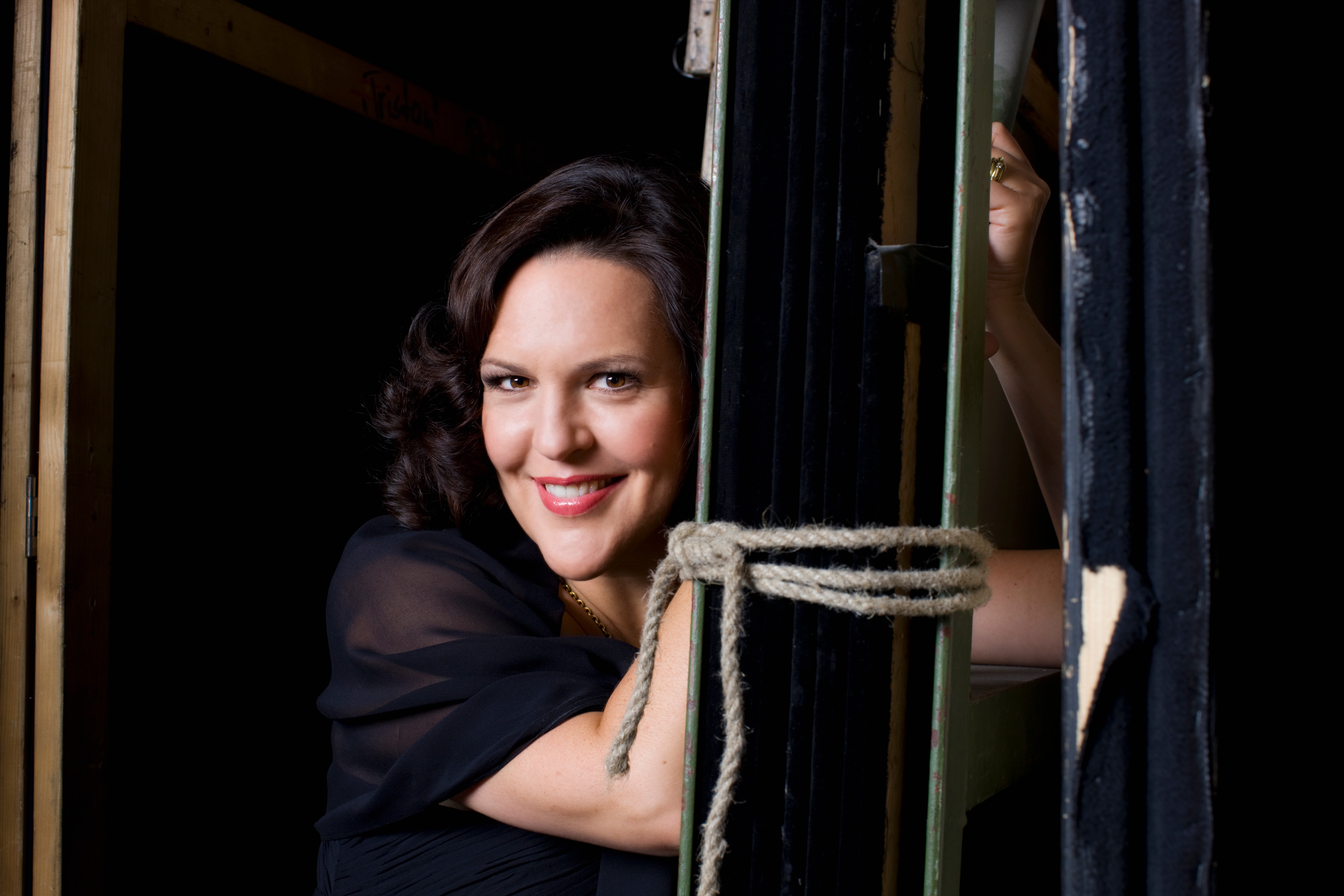
Vissa d'arte: Adrianne Pieczonka
The Music Scene makes Adrianne their cover story this month in a feature about her recent roles, career, life and advice to young singers.
“With Adrianne Pieczonka giving a captivating reading of Chrysothemis…Pieczonka has a lovely vibrant soprano that soars to grand heights, especially in her early ‘Ich kann nicht sitzen’ aria.”
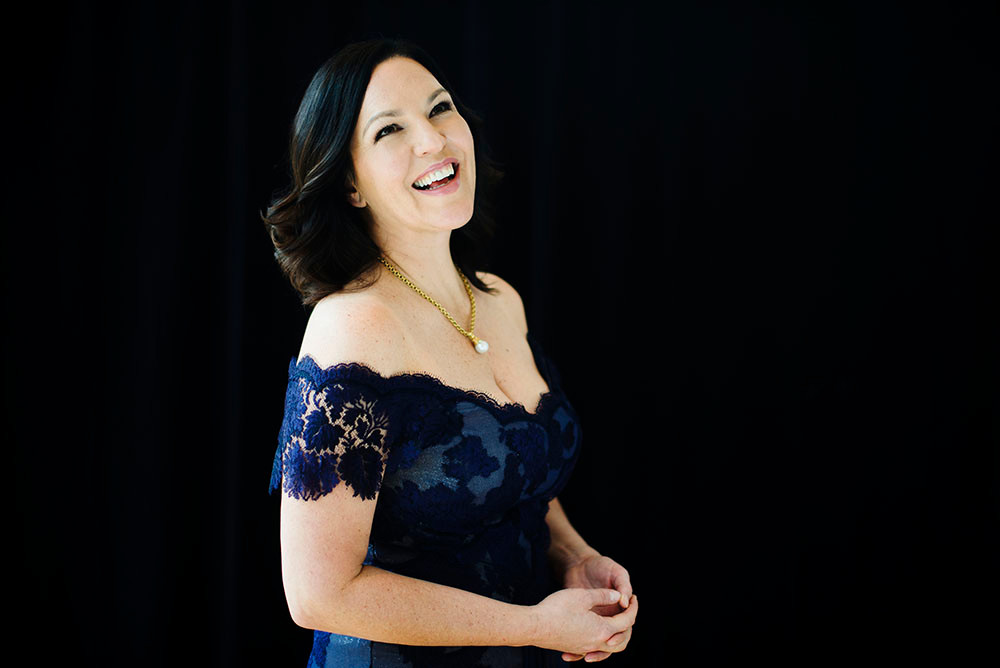
Adrianne Pieczonka: Une Senta Canadienne à la Bastille
Adrianne on her house debut at the Opéra national de Paris Bastille which will also mark her debut in the role of Senta in Wagner’s Der Fliegende Holländer.
“Adrianne Pieczonka, returning to the Met after many years of absence, sang the punishing role of Chrysothemis with warmth and commitment. Her top notes were both supple and beautiful, and her acting showed her to be a concerned but level-headed woman, ready to take control of her destiny at the end of the opera.”
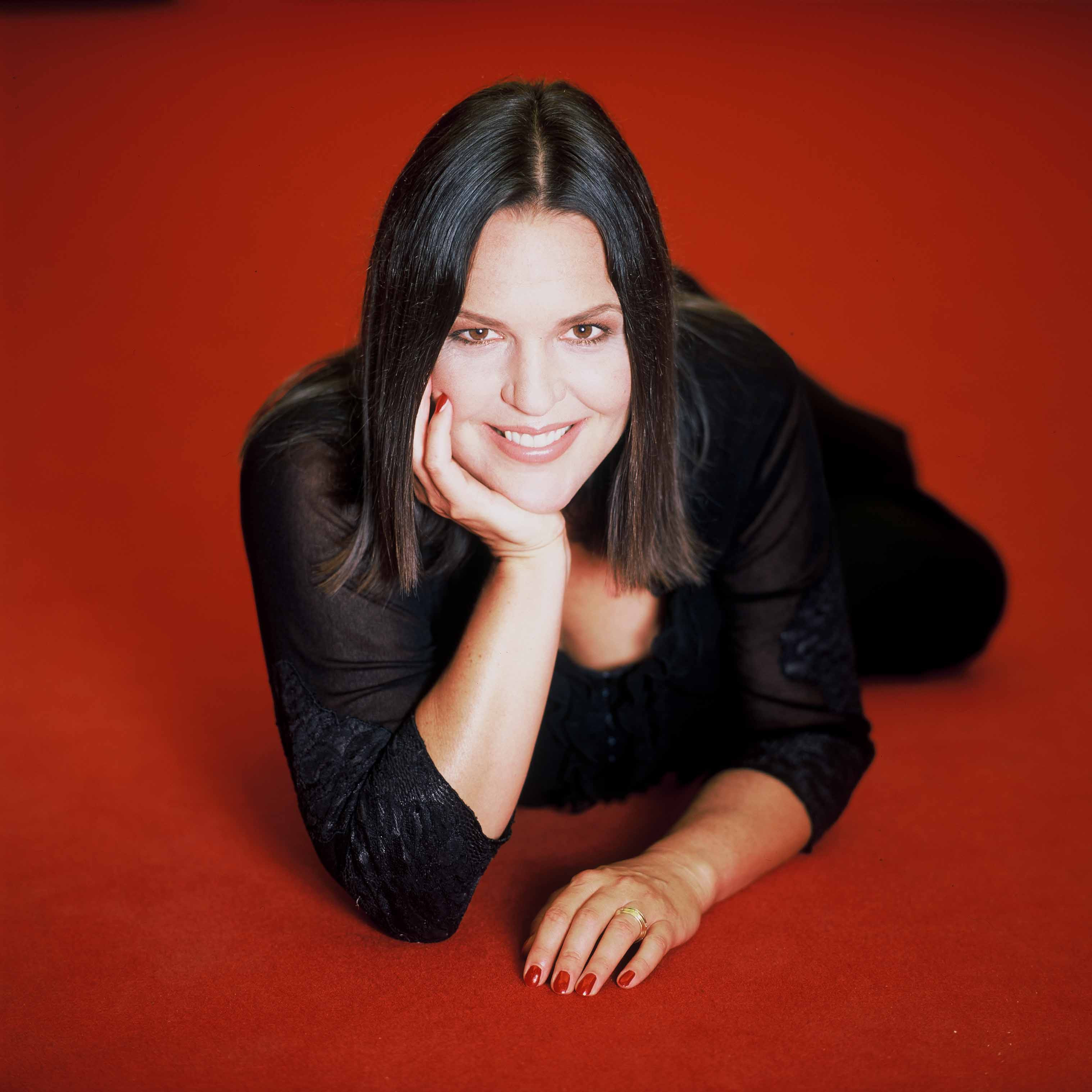
Adrianne Pieczonka: Senta se situe un cran au-dessus de mes autres emplois wagnériens
This month, Adrianne makes a double debut: her first appearance at the Opéra national de Paris Bastille and as Senta in Der Fliegende Holländer, a role she reprises in February 2011 at the Vienna Staatsoper. Forum Opéra’s Clément Taillia interviews Adrianne about both exciting projects.
“CD2 introduces the Canadian soprano Adrianne Pieczonka who has a honey-toned yet powerfully projected voice, sensitive to each song and technically secure through the odd coloratura-style passages.”
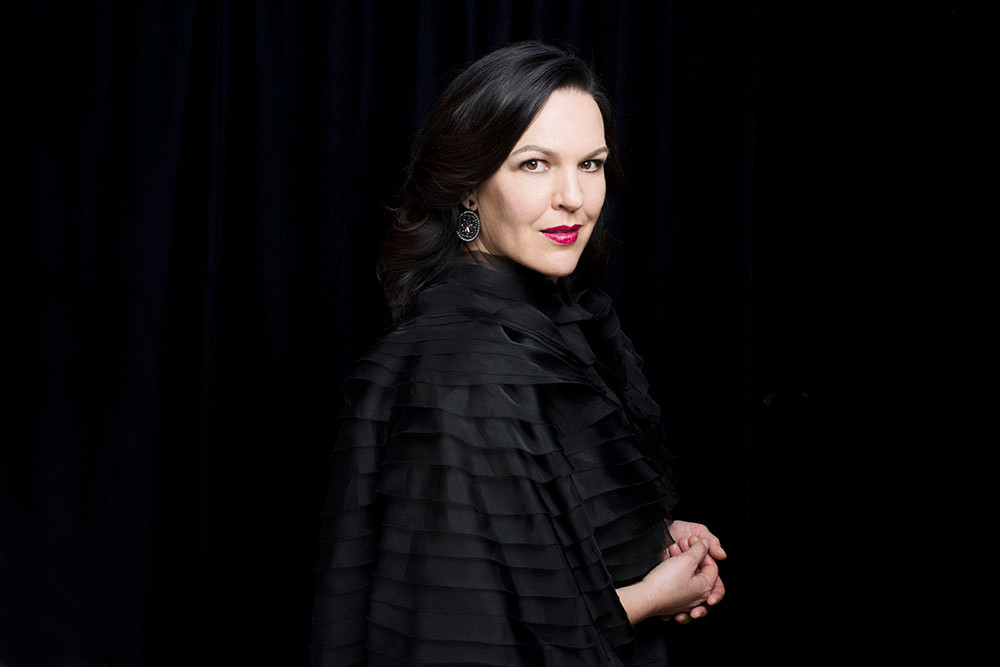
Westben: Rural recitals a vocal luxury for Toronto opera stars
Like many of us, two Toronto singers known to for critical raves on international opera stages are going to be breathing in some Canadian country air over the next few days. Just don’t call these outings a holiday. Soprano Adrianne Pieczonka and baritone Brett Polegato are both honouring the 10th anniversary of the Westben festival, outside Cambellford, with recitals.
“Adrianne Pieczonka shines as Madame Lidoine, the new prioress, exuding love and warmth. Her concern for her sisters is sung with dramatic vocality. She was very impressive in the final death scene of the nuns.”
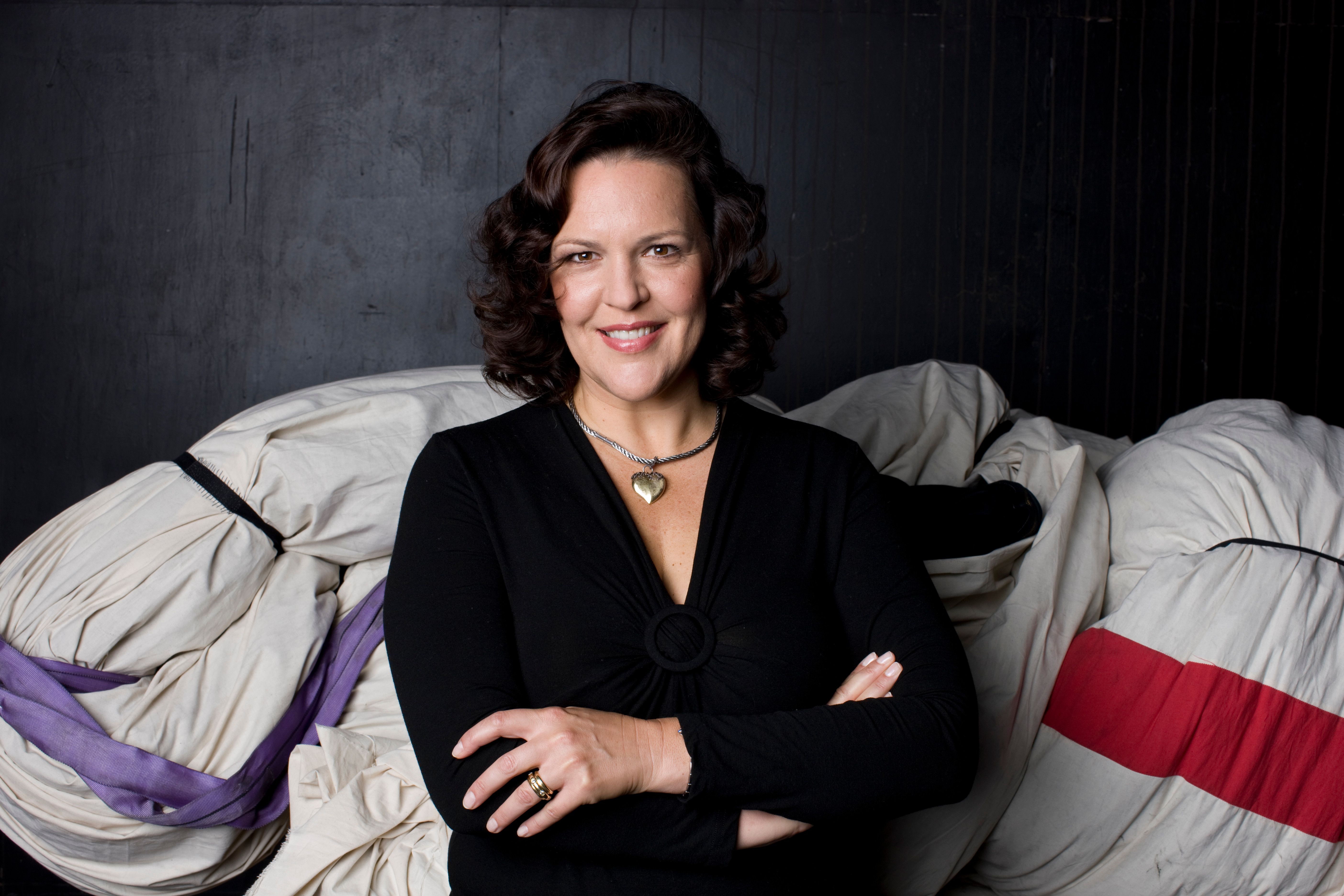
Sea Change: A former Wagnerian finds Puccini
Adrianne talks to Brian Wise about her new all-Puccini disc and whether or not she approaches the more romantic repertoire any differently than she would when preparing to sign Wagner.
“Making her DNO debut, Adrianne Pieczonka brought vocal beauty and dignity to the role of Madame Lidoine…her ariosos, wrapped in the velvet of her luxurious timbre, revealed a deeply touching, motherly Prioress.”
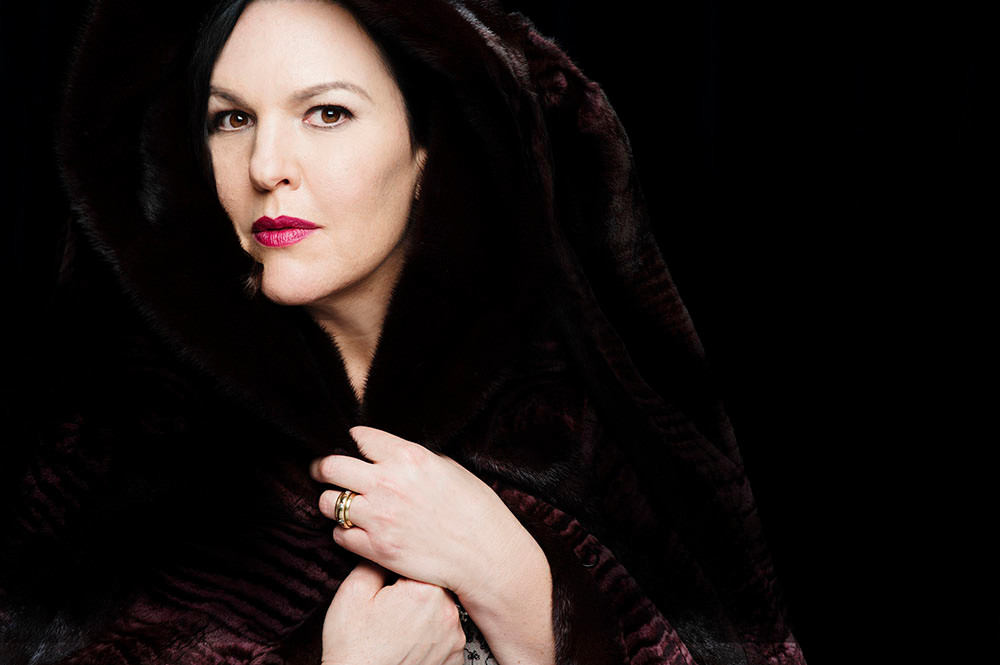
Adrianne Pieczonka: A delicate balance
COVER STORY: Adrianne on the secret to combining an international career with a fulfilling family life.
“Adrianne Pieczonka gave a moving performance as Madame Lidoine, the new prioress who leads her flock to martyrdom.”
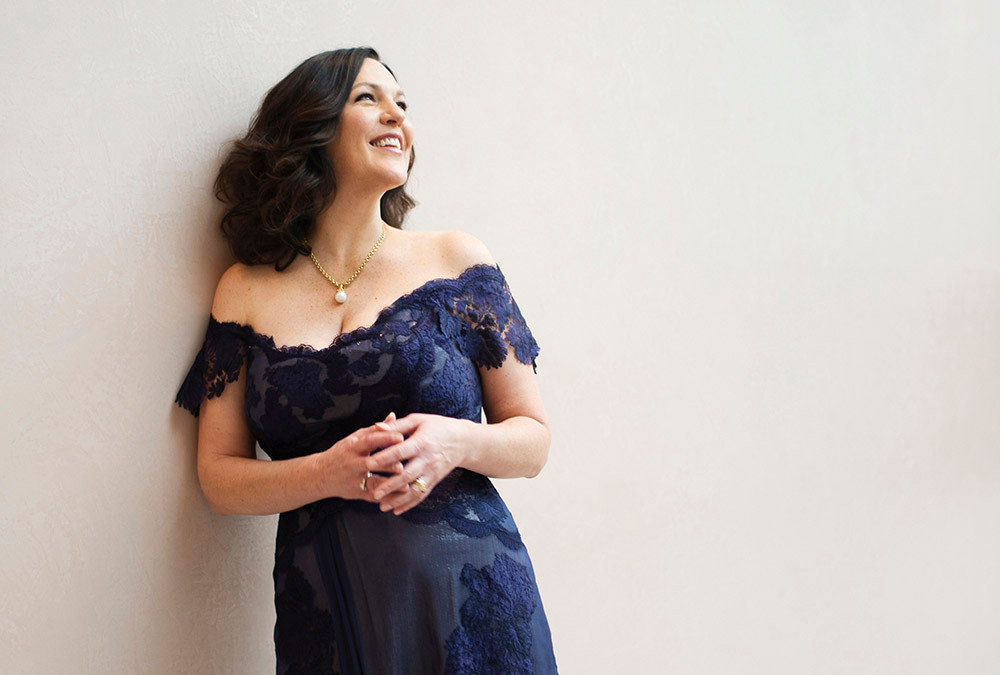
Juno for local opera singer a ‘great feeling’
Burlington is home to another Juno Award as opera singer Adrianne Pieczonka won the 2010 Juno Award for Best Classical Album of the Year: Vocal or Choral Performance for her recording of Puccini arias. Currently in Florence, Italy rehearsing for her debut in the role of Die Kaiserin in Strauss’ Die Frau ohne Schatten at the Maggio Musicale, conducted by Zubin Mehta, Pieczonka said the Juno is a great honour.
“Ms. Pieczonka['s]…luminous voice is skillfully focused. She sings with bright yet warm sound and a minimum of throbbing vibrato. For all the natural ampleness of her voice, there is a youthful, feminine quality to her singing. The 12 Strauss songs offered here include some popular ones, like “Morgen,” and lesser-heard fare, like “Rote Rosen” and “Die Nacht.” She gives an exceptionally sensitive account of Wagner’s “Wesendonck-Lieder.” Mr. Zeger plays everything beautifully.”
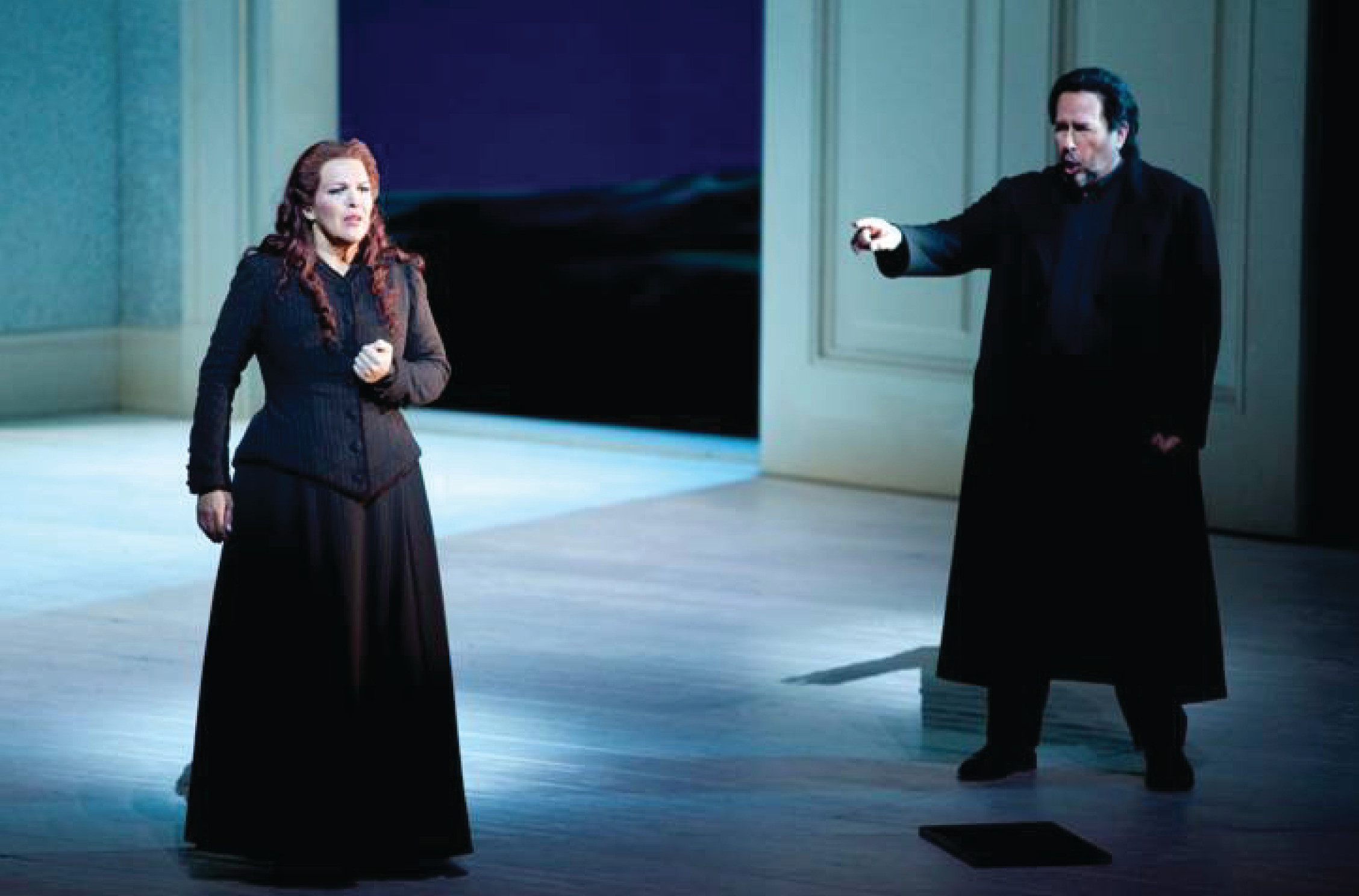
See our Adrianne's 'older' opera guy in HD
When Adrianne Pieczonka steps onto the stage of the Metropolitan Opera to sing in Verdi's Simon Boccanegra on Saturday, things will be different. This time, not only is Amelia Grimaldi a role debut for her, but the Met's HD cameras will simulcast her every note and move to a worldwide audience.
“It is difficult to believe that Adrianne Pieczonka has built up some years of experience of singing taxing Strauss and Wagner roles in the opera house. Heard under the close scrutiny of a Lieder recital, her soprano retains a bloom that is positively youthful…In loving or sensuous Strauss songs, such as ‘Einerlei’ and ‘Rote Rosen’, the basic warmth of Pieczonka’s luminous voice sets a sort of Straussian ideal. ‘Du meines Herzens Krönelein’ is affectionately playful and accompanied with a light touch by Brian Zeger (compare Strauss himself at the piano, casually flamboyant). ‘Im Treibhaus’ and ‘Träume’ especially, the two studies for Tristan und Isolde, radiate glowing soprano warmth, sympathetically seconded by Zeger. …it would be hard to do better than Pieczonka’s radiant performance.”
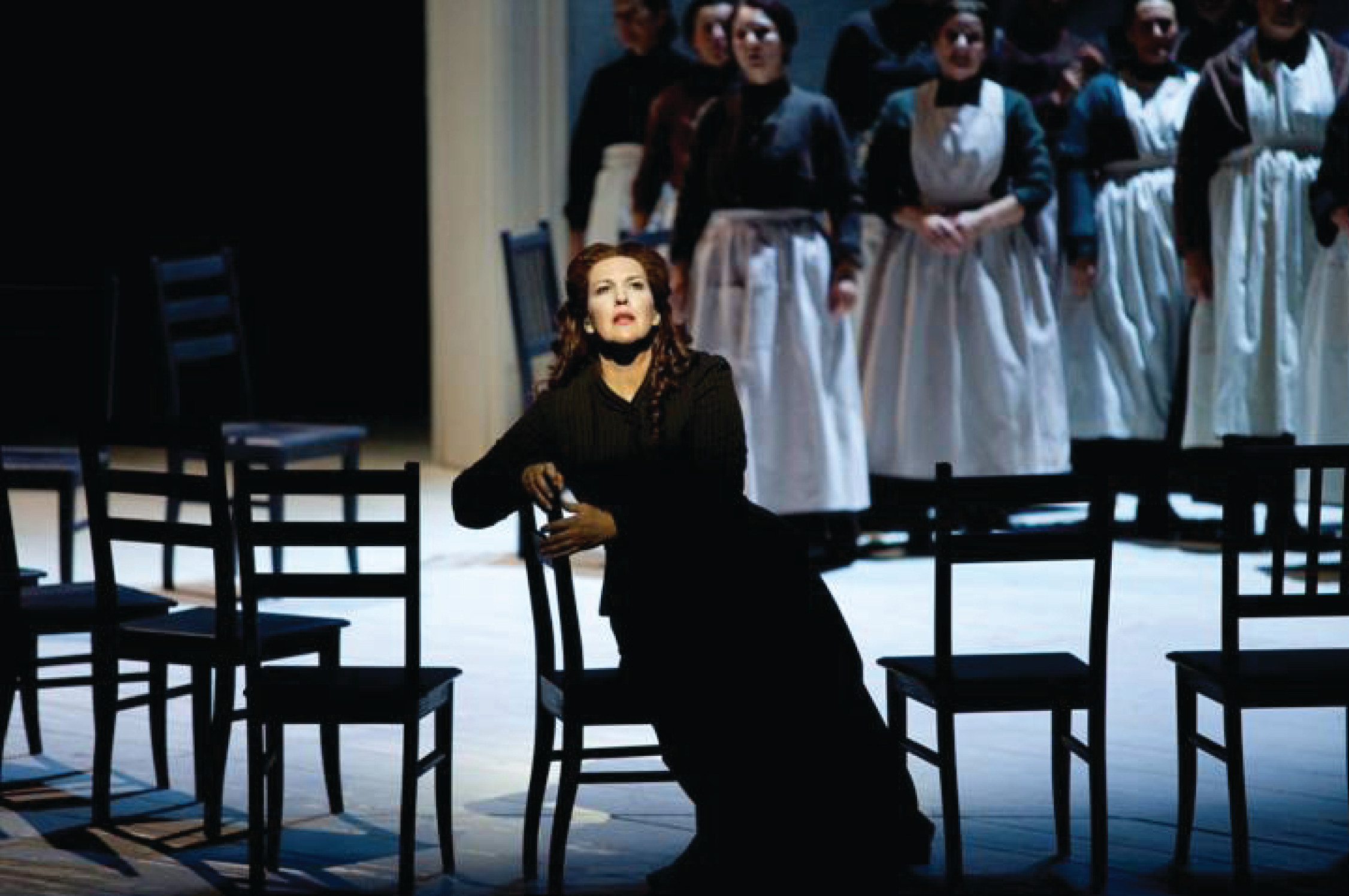
Adrianne Pieczonka on Rusalka, Jenufa and Katya
Adrianne on her two upcoming debuts as Amelia in Simon Boccanegra at the Met and her debut at the Opera Bastille as Senta in Der Fliegender Holländer, and her love of performing Czech roles.
“Pieczonka delivered a stunning, passionate, deeply committed performance of [George Crumb's Ancient Voices of Children] a taxing, and still startlingly original work… The abandon and courage with which she threw herself into this work and inhabited its spirit attests to a creative intelligence in tune with our century, as well as centuries past. Szabó and Pieczonka matched their darkly-hued voices in some George Crumb arrangements of American folk songs, from Hush, Little Baby to When the Saints Go Marching In. And there were even some Beatle songs arranged by Luciano Berio that Pieczonka threw in for good measure. But Crumb's Ancient Voices was the stunning highlight of the evening. A work almost 50 years old, it still has the power to arrest and amaze, especially when performed with the sure and steady hands of musicians of the calibre that Soundstreams Canada assembled on Tuesday night.”
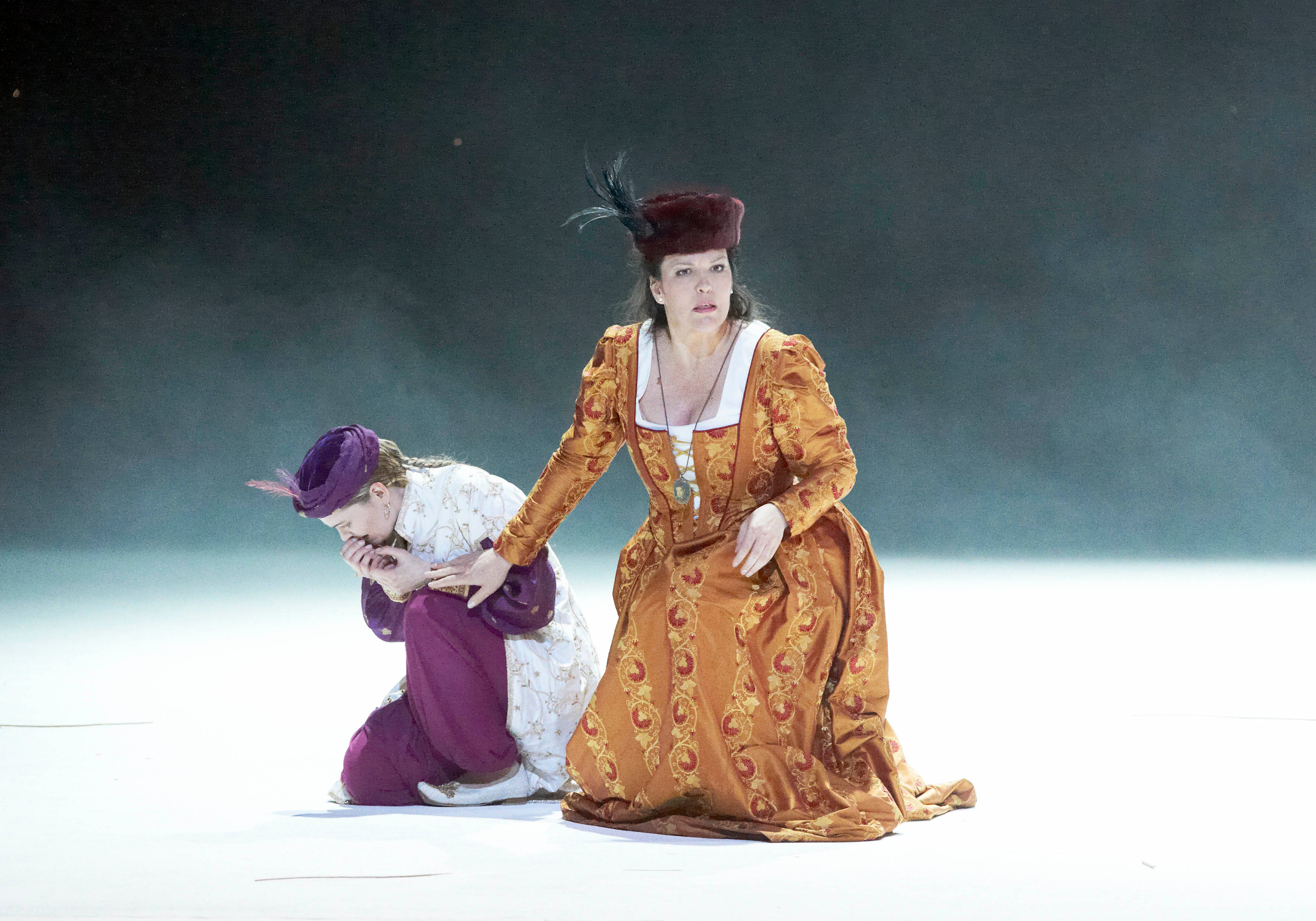
Dramatic Move
Adrianne speaks with Allan Ulrich about her debut performances as Amelia in Verdi’s Simon Boccanegra at the Metropolitan Opera and the development of her career from early days at the Vienna Volksoper to her current busy international calendar.
“Adrianne Pieczonka sang with steely strength and agility, imbuing the role of Leonore with superhuman effort and navigating her seemingly unsingable music with ease.”
“The conductor Franz Welser-Möst, who led the great Vienna Philharmonic in a transparent and majestic account of Beethoven’s score, won a huge ovation, along with the excellent singers, especially the two leads. They are the astonishing tenor Jonas Kaufmann…and the compelling, bright-voiced soprano Adrianne Pieczonka as Leonore, Florestan’s tenaciously loving wife.”
“Quite different is Adrianne Pieczonka as Leonore: she embodies the passionate loving wife with a burning intensity, fighting for the life of her husband… Her sound is visceral; every note transports us with emotion.”
“A touchstone for all dramatic sopranos is the role of Leonore. Adrianne Pieczonka impressed with superb mittelage in the lyrical phases…and copes well with all the high requirements of this difficult role.”
“[An] expressive artist, Adrianne Pieczonka is a Leonore with a lyrical soprano and firm determination...”
“There’s an appealing intimacy to this recital disc by Adrianne Pieczonka, who was the best thing about the Royal Opera’s last revival of The Flying Dutchman in February. Up close, paired with pianist Brian Zeger, the focused sweetness of her soprano sounds as radiant as ever…Wagner’s Wesendonck Lieder are framed by a dozen Strauss songs, including a performance of Begegnung that captures perfectly its love-dizzy mischief; Traum durch die Dämmerung describes a beguiling smooth transition into dusk thanks to Pieczonka’s full-bodied, easy lower notes. That mellowness also makes Im Treibhaus a highlight, but everything here is worth hearing.”
“Adrianne Pieczonka, one of today's best lyric sopranos in the German repertoire, led a truly solid cast. Her voice has an impressive touch of metal that, combined with an electric vibrato, inflames her interpretation. .. she was able to depict a passionate, elegant and brave Leonore. .. a brilliant performance.”
“Adrianne Pieczonka has the voice and the perfect personality for the role, with strength and power across her range.”
“The best of the night was the outstanding Adrianne Pieczonka in the part of Leonora, with a beautiful voice with just the right metallic timbre, an impeccable line and able to confront a complex vocal line with ease.”
“Toronto-based soprano Adrianne Pieczonka [sang with] exceedingly warm tone and near perfect diction. We are lucky to have her…Wagner’s famous “Prelude und Liebestod” from the opera Tristan und Isolde was another lush treat of the evening. Though Noseda took the tempo painfully slow, the velveteen music helped Pieczonka’s wide-open vowels envelope the space.”
“Noseda & Pieczonka gave us a very subtle reading of Richard Strauss’s Four Last Songs… Frühling was a reading of subtle mystery with a marked delicacy to Pieczonka’s sound. Even ascending to her high B she was floating her sound against a shimmering orchestral backdrop, her sound easily heard but wonderfully restrained. For September the voice emerged from the orchestra like a jewel against velvet. A fuller sound opened Beim Schlafengehen, leading us to Jonathan Crow’s magisterial solo, ascending like the soul itself, followed confidently by the soprano’s voice. She did not push out the last notes as some do – “zu leben”—but thoughtfully intoned them, seeming to be moved (I am sure I saw her dab her eye at this point, at which point I lost it).”
“As Senta, Adrianne Pieczonka is simply magnificent, with a warm and radiant voice that melts in its lower register and cuts higher up, and the ability to inhabit the role to heartbreaking effect.”
“...there is Adrianne Pieczonka's wonderfully ardent Senta.”
“As the hapless Senta, a girl driven by a desire to escape, Canadian soprano Adrianne Pieczonka was outstanding, matching Terfel in her physical quietude, never missing a note, strange, impetuous, mad.”
“The highest accolades, however, go to Adrianne Pieczonka as Senta. She has a tough act to follow in the form of Anja Kampe who assumed the role in 2009 and 2011, but Pieczonka’s voice is vibrant, stirring and spiritual. She also maintains evenness of tone throughout, however, and lines are always followed through to good effect. Her performance of the ballad almost makes time stand still, and the expressions on the faces of the female chorus as they listen attentively surely mirror those of the audience. Her sensitive acting also makes the Dutchman’s final decision seem less ridiculous and arbitrary than normal.”
“Adrianne Pieczonka’s Senta is such a tour de force: the Canadian soprano sounds gorgeously vibrant while still capturing the character’s vulnerability.”
“Canadian soprano Adrianne Pieczonka [is] a blisteringly beautiful Senta, who pairs a disarming purity and sweetness of tone with tremendous vocal power. There’s a ferocity, an intention to her delivery that makes sense of Albery’s rather oblique production. Here is a woman possessed by an unnatural obsession, a woman set apart from the grey world around her by the blazing belief in her destiny. The candle she carries throughout her ballad mirrors the searchlight that strafes the audience throughout the overture, a beacon leading her to her only possible fate… Pieczonka gives little sign of strain, discovering new power and heft for a final scene that chills with its conviction. This Senta might not throw herself into the water at the end, but for the first time that doesn’t seem to matter. As she drops to the floor, clutching the miniature ship to her belly, we know that this curse, this death, is one of the mind, just as her passions were too.”
“Completing a fine cast was his Canadian compatriot, Adrianne Pieczonka, as Senta. She was not as blazingly fearless as some I have heard but her restrained singing seemed to fit perfectly with the production and it was an intense interpretation and she seemed so utterly possessed by the music and the character that moments such as when she was being manhandled by the Dutchman’s crew made for uncomfortable viewing.”
“In the tricky and taxing role of Senta Adrianne Pieczonka’s silvery soprano has developed more warmth at its core, and it now carries more emotional depth. How wonderful to hear the ‘Ballad’ without snatched high notes – and instead to hear the phrases so sensitively shaped and coloured. As an actress she is also affecting with her very expressive eyes. Some may prefer Senta to be more haunted, visionary or even fanatical but this is a refreshingly restrained interpretation.”
“Equally impressive is Canadian soprano Adrianne Pieczonka’s Senta. She sings this tiring, awkwardly written role impeccably, and the character’s obsession with the legendary seafarer who suddenly turns up to marry her is palpably real; this is perhaps the best performance this artist has given at the Royal Opera House.”
“Adrianne Pieczonka was a free-voiced Senta, with the warmth and strength of tone necessary to soar over the orchestra.”
“Adrianne Pieczonka made a triumphant debut in the title role. She is a superb Tosca. The many faceted soprano got her start at the Vienna Volksoper and she has since developed into a wonderful artist. Her strong personality is at the fore in Tosca and the heavier roles which she has sung over the years have not had any effect on her voice. Her "Vissi d'arte" was delivered simply and intimately that one almost forgot to applaud at the end.”
“The main attraction of the evening was Adrianne Pieczonka who filled every wish both vocally and dramatically. Her noble, cultivated voice rendered her "Vissi d'arte" a true highlight.”
“Adrianne Pieczonka pours out plenty of warm, brightly lyrical tone as Chrysothemis.”
“The third ‘face’ of this portrait of three women is the Adrianne Pieczonka’s Chrysothemis displaying all the vitality of health and normality of the youngest daughter of Agamemnon in the full knowledge of what is happening around her.”
“...expressive Chrysothemis...”
“Adrianne Pieczonka imbued the desperate solitude of Chrysothemis with great lyricism.”
“The good sister, Chrysothemis, is portrayed with gentleness by Adrianne Pieczonka.”
“Adrianne Pieczonka as Amelia is irresistible. Her "Morrò, ma prima in grazia" was the most authentic moment in the opera: it seemed like she actually melted her husband's murderous rage. Her creamy soprano ached with vulnerability, shaping gorgeous tones through a shimmering range of emotions with ease and power. Her presence floods the ending in forgiveness.”
“Pieczonka plays Amelia in A Masked Ball, a woman in love with a chief magistrate but married to his closest friend and adviser, and every time she opened her mouth, the production moved to another world altogether. Pieczonka's soprano has a wide range, but is clear and focused at the very top through to the very bottom. She used breath control, phrasing, changes of volume and gobs of musical colour to give Amelia intense emotional reality...If opera is vocal drama, Pieczonka gave a master class on how it should be done.”
“If you needed one good reason to go see the Canadian Opera Company's production of A Masked Ball, it would have to be Adrianne Pieczonka's unmatchable rendition of the showcase aria 'Morro, ma prima in grazia.' It requires a true artist to make the moment deeply touching without falling into the sentimental, while also doing justice to the absolute whirlwind of emotions that Verdi has layered into the music. Pieczonka is up to both challenges. Her acting remains a model of restraint throughout, even while offering us true commitment, and her always superb vocal technique has - to my ears - never been better. The fortissimos had power without harshness, the pianissimos possessed delicacy as well as intensity. And all the terrain in between was covered with equal grace.”
“Pieczonka's Amelia is the calm, strong, feminine center amidst a mass of bro-tastic back-slapping conformity. What makes Pieczonka even more beguiling is her beautiful rich, singing. Whether it's to Riccardo, or Renato, or holding her son, or pacing around an empty club in satin pajamas, the Canadian soprano's voice is rich and full of color, resonating with emotion but fully controlled.”
“Adrianne Pieczonka was...three-dimensional as Amelia. The high C's hold no terrors for this lustrous soprano.”
“Adrianne Pieczonka makes an instant stunning impression with her entry scene in which her singing is both grand and expressive. She maintains this throughout the performance.”
“The cast was dominated by the Empress of Adrianne Pieczonka, whose astounding vocal range, enviable beauty of tone and supreme dramatic commitment made her an ideal interpreter.”
“Adrianne Pieczonka was greeted with jubilant applause in her brilliant house debut as "the Empress". She created a lyric mood with luscious phrasing and radiated with shimmering strength in the higher tessitura. The Empress is perhaps the most demanding role of this opera and one that calls for great vocal and dramatic virtuosity.”
“The best and most musical performance, and the most stylish personality on stage, was Adrianne Pieczonka as the Empress – sometimes delicately suggestive of a superhuman doe-like creature with the intricate filigree of her vocalising, and at other times looking as glamorously luscious as Rita Hayworth.”
“[a] thrillingly sung and very moving Empress.”
“The beautiful fairy princess Adrianne Pieczonka sings with sweet flute like tones and rounded vocality even in the highest register.”
“As the Empress, Adrianne evolved even further. In other Strauss roles she impresses with her rich middle vocal range but in this role she has climbed new heights. Full bodied vocality, reflected often in her alienated portrayl. What a great embodiment of this role!”
“Pieczonka is ideally cast as the Kaiserin.”
“Adrianne Pieczonka's voice possesses all the colours for the shimmering dream world of the Empress and masters effortlessly the intricacies of the role.”
“Adrianne Pieczonka sang the Empress with an inward glowing lush quality, never sharp. Pure soprano bliss. Her unconditional devotion in the Act 3 melodrama was deeply moving.”
“Adrianne Pieczonka masters the Empress, a fiendlishly difficult role. Her voice radiates warmth, maturity, fullness and colour. Her portrayal was the vocal highlight of the evening.”
“Adrianne Pieczonka sings Chrysothemis with uninhibited, soaring vocal lines.”
“Adrianne Pieczonka shone, enthralling and sweetly beguiling, as the home-loving Chrysothemis.”
“As Elektra's sister, Canadian soprano Adrianne Pieczonka filled out Chrysothemis' soaring vocal lines with consummate ease. Given that sopranos of this calibre do not grow on trees it seems unfathomable why we've not seen her at Covent Garden since 2002 either. I just hope she returns soon as she is such a treasurable artist.”
“Adrianne Pieczonka [is a] bright, nuanced, pitch-perfect, Chrysothemis. Surprisingly this was the first time since 2002 that the Canadian soprano has sung at Covent Garden. She is, of course, the more human, though still vulnerable, sister and has all the feminine emotions Elektra does not allow herself. Pieczonka acted her character's hopes and fears to perfection.”
“Adrianne Pieczonka's Chrysothemis is vocally thrilling.”
“The revelation, though, was the Chrysothemis of Adrianne Pieczonka, a role she also sang at this year's Aix Festival. The Canadian soprano grasped her opportunity to recalibrate the opera's emotional world closer to something we might recognise as normality and did so with a lyrical vulnerability and even tenderness - glimpses of dignity and sanity that set the horror elsewhere into even starker relief.”
“Elektra's sister Chrisothemis, whose only desire is to escape from all this to a normal life, can appear a weaker character, but Adrienne Pieczonka imbues her with nobility and strength of character as well as bringing us a meltingly smooth vocal timbre.”
“...the totally liberated, golden sounds of Adrianne Pieczonka, the revelation, as pampered, neurotic, child-yearning sister Chrysothemis. Hers are the money notes, the free and easy but always intense sound.”
“Adrianne Pieczonka is sensational as Elektra's terrified sister, Chrysothemis.”
“Adrianne Pieczonka brings appropriate lyricism to her portrayal of Elektra's more conventional sister, Chrysothemis, who yearns for a normal life amidst the surrounding mayhem.”
“[Christine Goerke] was strongly flanked by the excellent Adrianne Pieczonka, whose broad and confident phrasing made Chrysothemis seem less of a wet blanket than usual.”
“Adrianne Pieczonka’s Chrysothemis remained steadfast in her wish to forge a normal life outside this dysfunctional family, and her soaring assertions of potential motherhood matched her sister’s appeals for vengeance with glowing soprano intensity.”
“Chrysothemis, is sung with opulent, room-filling tone by Adrianne Pieczonka, seems the most human, but there is an obliviousness in her determination to go on living.”
“The rapturous lyricism with which Chrysothemis (a glowingly confident Adrianne Pieczonka) begs for normality can rarely have seemed more urgently persuasive.”
“A Chrysothemis with such an insistent gleaming tone is rare.”
“Adrianne Pieczonka's Chrysothemis is emotionally wide open, her singing and acting huge, exciting, and pitch-perfect.”
“Adrianne Pieczonka, in fine voice, enlists passion to convey the more conventional aspirations of Elektra's sister Chrysothemis.”
“In contrast. the primary emotion of Chrysothemis were conveyed by Pieczonka in a clear and intense lyricism.”
“Adrianne Pieczonka is a revelation, with a lavishly creamy voice capable of expressing all the emotions that Elektra forbids herself.”
“As for Adrianne Pieczonka, she is a Chrysothemis of dreams. The timbre is burnished, the projection full and the line beautiful and sustained.”
“The powerful and fresh Chrysothemis of Adrianne Pieczonka.”
“...the tender Chrysothemis (Adrianne Pieczonka) [is] in top form, ready to live the life of a woman and escape her 'prison'.”
“Even more, Chrysothemis, as the younger weaker sister, quietly reads while her elder sister Elektra personifies Kirkergaard's treatise on despair: Canadian soprano Adrianne Pieczonka radiates the sane clarity of a well-balanced adult.”
“...the remarkable Chrysothemis of Adrianne Pieczonka”
“Adrianne Pieczonka brought warmth to the role of Madame Lidoine, the Second Prioress.”
“Adrianne Pieczonka, providing a lot of power with her Madame Lidoine.”
“The strongest straight-up soprano singing came from her fellow Canadian Adrianne Pieczonka as the New Prioress.”
“Adrianne Pieczonka is in glorious form as Madame Lidoine. Her voice and acting radiate warmth, comfort and strength as the new prioress, which is just what the nuns need after the horrifying experience of the Mother Superior’s death. As she inspires her charges she inspires us to see that their deaths can serve to glorify God.”
“[The First Prioress'] place in the circle of spiritual life is filled beautifully by Adrianne Pieczonka, who tries to lead the sisters toward a positive destination, using her sublimely healing voice as her major weapon.”
“Adrianne Pieczonka, as the Second Prioress, is undeniably luminous, vocally and dramatically, as she restores majesty to her office of mother to her daughters. The sheer force of her performance overwhelms any issue about her beliefs.”
“A top flight, impeccable and engaged cast. To start, the German (sic) soprano Adrianne Pieczonka (Senta) displayed an impressive vocal form – to the point that her beautiful voice became even more beautiful as the evening progressed. Right from her entrance aria she was convincing - her voice projected with disconcerting ease and power, unexpectedly enhanced with extraordinary pianissimi in her “Doch, dass der arme Mann...” And even in her final torment, at the very moment she is about to stab herself, she still has the strength to launch a terrifying, glacial high note at the beginning of a desperate “Hier steh’ ich, treu dir bis zum Tod!” Adrianne Pieczonka dominates her role with a vocal generosity that is unfortunately rarely heard today.”
“Adrianne Pieczonka was a quite neurotic Senta, with a nice ringing voice.”
“If the protagonist of the opera is Senta, who, seduced by a portrait, keeps the figure of the Dutchman hidden inside herself in a kind of spiritual devotion, then Adrianne Pieczonka understood the role: proud, passionate, but also fiercely dedicated to her mission of salvation, impresses with her vocal quality, expressiveness and stage presence.”
“The trump card of the evening was Adrianne Pieczonka's Senta who proved she was finally back again at the Festival after an absence of 5 years. Constantly sovereign, the Canadian was impeccably prepared and mastered the challenges of the difficult role with bravura. At no time was her intonation or legato in question - on the contrary, her vocal performance was masterful and touchingly expressive. It was a unique experience.”
“A shooting-star of the opera world if ever there was one, Pieczonka's winning international acclaim in the works of Wagner and Strauss. Her voice, effortless and articulate, particularly in the top register, was radiant and crystal clear in a remarkable and unforgettable performance of great strength and magnitude. She brilliantly portrayed the rôle of Senta as a moody, unsettled and dissatisfied girl sprucing up her dull life by wearing a bright red dress, the only flash of colour in a 'sea' of blandness.”
“The true vocal laurels of the evening went to soprano Adrianne Pieczonka, whose Senta was as dramatically committed as it was stunningly sung. Pieczonka sang with immaculate diction and a youthful purity of sound, moving from strength to strength as the evening progressed.”
“Frenetic ovations greeted Adrianne Pieczonka for her supreme performance. With clear, powerful, contoured high notes and precise dramatic gestures, she was the star of the evening.”
“Adrianne Pieczonka's Senta, whose seductive portrayal is matched by a big, voluptuous voice. This Senta is not the conventional maiden but a modern woman with deep sexual frustrations and Pieczonka sings the part with style and authority.”
“Adrianne Pieczonka sang a glorious Senta.”
“Adrianne Pieczonka was triumphant vocally. Her portrayal of Senta was incomparable.”
“Adrianne Pieconka's Senta was gleaming and wonderfully lyric at all times.”
“He could not, of course, hold a candle to his Senta: Adrianne Pieczonka modeled each phrase with an ease that is unmatched, with limitless flexibility, lyrical grace and power - and with such emotional conviction that she leaves everyone else far behind. Her pianissimo is stupendous.”
“...and Adrianne Pieczonka, singing with seductive, penetrating tone.”
“Adrianne Pieczonka made a powerful, persuasive Senta.”
“The biggest ovation went to Adrianne Pieczonka for her unusually lyric Senta. Thanks to Christian Thielemann's conducting, she never had to force her voice.”
“There was great applause especially for the new Senta, Adrianne Pieczonka whose voice bloomed fully in the dramatic moments but also had the necessary lightness to sing the lyric passages of this challenging role.”
“Adrianne Pieczonka navigated her soprano voice from the airy coloratura of her very first entrance to the deepest tension of her 3rd act Monologue. Her natural vocality retained its brightness throughout. She sang with intensity but not effort. The more than two octave leap in her final scene was immaculate.”
“Despite fine performances from the entire cast, the evening belonged to Adrianne Pieczonka. Her noble, unpretentious portrayal of the Empress struggling to move from her magical realm to the real world in order to find her humanity was very clear and poignant.”
“Adrianne Pieczonka is an elegant, word perfect Kaiserin.”
“Adrianne Pieczonka delivered precious high notes throughout the evening.”
“Like her Metropolitan Opera Sieglinde in the late lamented Otto Schenk production, this Senta was well-nigh perfect in both sigh and sound. No modern Wagnerian looks more like a proper German-storybook heroine should, and surely no one sings this role with great beauty, accuracy or affection, shaping the often awkward-sounding ballad as if it were an exquisite Bellinian jewel.”
“...the Toronto-based soprano identified so fully with the title roles, both vocally and histrionically (not least in a poignantly sung 'Vissi d'arte') that her right to the role was never in doubt.”
“Adrianne Pieczonka's Tosca the best thing in COC's production of Puccini classic. [Pieczonka] uses her own theatrical shrewdness and innate likeability to scrape away the years of theatrical artifice from the role and offer us a diva-free zone. Her Tosca begins as a good-time girl, charming, playful, quick to become jealous, quicker to forgive, more anxious to discuss her late night rendezvous with her lover than worry about the finer points of Franco-Italian politics. But when reality intrudes in Act II and she comes face to face with the evil lust and intellectual duplicity of Baron Scarpia, she grows up very quickly indeed. At this crucial moment in the opera, Pieczonka sinks to the floor like a sad little rag doll who's had all the stuffing torn out of her and, in a moment of silent clarity, looks at life anew. This means that the famous aria, "Vissi d'arte" becomes so much more than a beautiful chance for her to sing. As the simple words and haunting melody float upward, Pieczonka's airy yet rich tones sound as though she was filling them with her soul, instead of mere breath. It's a moment of transcendent beauty that carries the artist through her murder of Scarpia, her revulsion afterwards, and the grand sweeping arc of the final act that leaves her with no other choice than to leap from the battlements to join her lover in death. In Pieczonka's hands, this becomes the stuff of tragedy, not melodrama.”
“[Pieczonka] gave a luminous performance of Vissi d’arte in Act Two, sung while on her knees.”
“...with vivid acting, a dignified bearing, and gleaming high notes [Adrianne Pieczonka] made a formidable impression.”
“The ace of hearts is Toronto-based soprano Adrianne Pieczonka, who captures the full power and pathos of Floria Tosca, a temperamental opera diva who is forced into murder in order to protect her loved one. Pieczonka is in her vocal and dramatic prime, providing the right emotional weight, phrasing and pacing to every note she has to sing. We are so lucky to have her with us in Toronto.”
“Song recitals often start out rather cautiously with "easy" or warmup pieces. Not so this time. Ms. Pieczonka achieved full lift-off with Schubert's "Ganymed" and never looked back. She expressed a variety of vocal moods, such as in the despairing "Du liebst mich nicht" (You do not love me), without overdoing it. "Gretchen am Spinnrade" started off hollow-toned and its dramatic structure was grippingly articulated. The second half began with Wagner's Wesendonck-Lieder. Here again she adroitly captured the right tone and mood of each number.”
“Pieczonka stepped back into the opera on May 2 [after recovering from laryngitis] - and on Thursday evening gave a performance so convincing it was hard to imagine she's ever had a vocal problem in her life. in the second and final act her sumptuous soprano filled out Richard Strauss's long lines and glorious crescendos with complete security and control. She was an ideal foil to the coloratura of soprano Jane Archibald as Zerbinetta, who stopped the show with her brilliant vocal pyrotechnics. Together they represented what this opera is all about: the contrast between deep and profound art, and light, delightful entertainment.”
“The soprano combines a beautiful voice with a sincerity and simplicity that touches the heart - an artist without artifice. On this particular evening, the extremely receptive audience was made up of voice fans of course, but also friends and family of the singer, gathered there to honour and enjoy an evening of music-making. It was an old-fashioned "love-in." The voice was clear and strong, the tone pure, with its trademark gleam. Her interpretation was straightforward, rather generalized in its emotional expression, the text communicated with unpretentious directness.”
“Die Forelle (The Trout) sparkled with fluid vocal agility; and Gretchen am Spinnrade (Gretchen at the Spinning Wheel) gradually built up to a frantic climax. Throughout the set, the soprano's voice was like velvet. ...There were two groups of Strauss songs- Pieczonka revealed a layer of steel beneath the velvet. She has the kind of powerful voice that can readily (or even inadvertently) be "weaponized," with harsh consequences for listeners. But this she did not do; rather, she tempered her tone with an endearing warmth. ...Pieczonka embraced the emotional texts [of Wesendonck Lieder] in ways that were both profound and subtle. Changes in dynamics and texture were skillfully handled - especially in the songs Stehe Still! (Stand Still!) and Schmerzen (Sorrows). She also seemed entirely comfortable with Wagner's unsettled, chromatic musical language. ...Similarly, in the second set of Strauss songs - Du meines herzens Kronelein, Morgen, Wir beide wollen springen, and Zueignung - Pieczonka was committed to the poetry and the musical line. She concluded the last song, Zueignung (Dedication) with a dramatic flourish that called for, and received, a spontaneous standing ovation.”
“Pieczonka's full lyric soprano is ideally suited to Ariadne, and there was much to enjoy in her luminous performance...the voice ringing out securely with its trademark gleaming tone. The high B in the opening of "Es gibt ein Reich" was glorious. She threw herself into the role and sang a moving final duet with tenor Richard Margison (Bacchus).”
“The wonderful Strauss interpreter displays how she can also shine in Wagner's music. Her floating, gleaming, endlessly spun tones are mixed with thrilling metallic attacks. She is a fascinating Senta.”
“In the heart of this production was the debut (sic) of Adrianne Pieczonka as Senta. She was rightfully cheered and celebrated for her remarkable intensity and power as we followed her through her dream world. With flawless, cultivated vocality her voice gleamed warmly and there were many moving moments throughout.”
“...a very elegant Senta”
“Adrianne Pieczonka is a noble and poised Marschallin. Her supple, soft but still powerful soprano is impressive. She does not skimp on warmth and gives the famous final trio in Act 3 a 'Hoffmannsthal' sparkling character.”
“...a sublime and elegant Marschallin”
“The best performance of the evening came from Adrianne Pieczonka - she sang The Marschallin with elegance and was vocally most impressive.”
“Adrianne Pieczonka debuted in the role of Senta and from the beginning on it was a triumph. Her interpretation was full of youthful freshness. Her voice is round and perfectly warmly timbered in every register. Her opening "Ballade" was powerfully sung, her duet with Erik fully of shyness and her love duet with the Holländer fully of ecstasy. Her singing is highly expressive from the first to the last tone. Wagner lovers will not be disappointed!”
“...the Canadian soprano Adrianne Pieczonka has the qualities of an almost ideal Senta - a radiant presence, full timbred, heavenly high notes and rich phrasing.”
“For their debuts at the Opéra de Paris, it was Adrianne Pieczonka and Klaus Florian Vogt who received the warmest acclaim. The Canadian soprano embodied Senta from the first moment - and, without losing strength, the vocal incarnation was complete (mastery over the high notes, a beautiful suppleness of expression).”
“As Senta, Adrianne Pieczonka is more forceful : there again, we are delighted to find a supple voice, very homogenous throughout the ensemble of the tessitura, technically solid enough to overcome the many obstacles that Wagner strews in her path (so rare that it is worth highlighting: all the high attacks of the famous 'Ballade' rang out with precision and a ease that never faulted), but one also sees a less assertive personality, more in line with the great interpreters of the role, into the centre of which Pieczonka has gloriously installed herself...let us welcome a role debut boldly assumed, with an ovation that we have rarely seen.”
“...the other wonderful surprise was the Senta of Adrianne Pieczonka, who like Vogt, was making her Opéra de Paris debut. The Canadian soprano took on the final scene with authority, an expansive voice, robust, and increasing warmth in the high notes …this Senta had presence, both musically and physically.”
“In the title role, Adrianne Pieczonka proves once more what delightful interpretations can be accomplished with the astute blend of accuracy, diligence, sensitivity and warmth which are at the heart of her artistic / professional philosophy. Her warm silvery tone seemed to come from another world and touched the heart deeply. The lightness of the florid passages went hand in hand with her generous tone in the dramatic passages.”
“Adrianne Pieczonka's Kaiserin is particularly lyrical, her radiant voice very well suited for the Strauss repertoire. Especially intense was also the finale 'ich will nicht' in which she affirms the happiness which is not based on the suffering of others.”
“The staging (direction, scenery, costumes) by Yannis Kokkos was very beautiful, as much for its oriental and fairy-tale overtones... as for the intensity and impressive accuracy of the singing, in particular of the two protagonists, Adrianne Pieczonka (the Empress) and the powerful Elena Pankratova (the wife of Barak), whose ideal voices and stage presence defined and blended the otherworldly luminosity of the first and the bizarre and resonant humanity of the second.”
“Also superb was the Empress of Adrianne Pieczonka...”
“Mehta brought together a cast of homogenous voices for their power. Standouts are Adrianne Pieczonka, a wonderful and expressive Empress...”
“...the soprano Adrianne Pieczonka, the Empress, with great personality and soaring high notes...”
“The luminous Adrianne Pieczonka...”
“...thanks to the excellent voice of Adrianne Pieczonka...”
“The singers are excellent: Adrianne Pieczonka has a full and supple voice for the role of the Empress...”
“The two protagonists were magnificent, the luminous and soaring Empress of Adrianne Pieczonka and...”
“Greatly appreciated are the interpretations of the highest level of the two sopranos: Adrianne Pieczonka was an esteemed Elisabetta in Don Carlo in 2004, a role she alternated with Barbara Frittoli. In this production she took on the role of the Empress - vocal sureness, understandably somewhat cautious at the beginning, but with progressive abandon and total control over the role.”
“[Pieczonka] offered sparkle, edge, pathos, whatever was required.”
“Following her successful debut as Lisa (Pique Dame) in 2004 and several appearances as Sieglinde, Adrianne Pieczonka returned to the Met in the role of Maria Boccanegra (alias Amelia Grimaldi) and conquered once again the public thanks to her cristalline voice, so well suited to the purity and innocence of the character. When full, this voice was of great beauty, and in the Council scene, had the capacity to become significantly larger. Personally, I found her at her best in the final scene, when the daughter is truly grief-stricken before the imminent death of her adored father.”
“...her sound is one of sheer beauty, with gleaming high notes, and her Amelia was fully formed dramatically.”
“As Maria/Amelia, the Canadian soprano Adrianne Pieczonka was splendid, singing with clear, shimmering, pitch-perfect sound and lovely phrasing.”
“...a winning Amelia with gleaming notes.”
“Adrianne Pieczonka’s Amelia runs him close indeed, and to my mind she not only dominated the first scene in Act 2 in her two duets with Adorno and Simon respectively where sparks continually fly, but her stage-presence is majestically commanding and arresting... There are at present no less than five versions from which one can make a choice, but this February 2010 showstopper from the Met is certainly up there with the very best.”
“Adrianne Pieczonka brings strength and lyricism to an Amelia more purposively acted than usual.”
“A thoughtful presentation, finely sung by a distinguished cast and wonderfully conducted by Bychkov.”
“Adrianne Pieczonka’s Marschallin gives a telling portrayal of a modern woman thoroughly enjoying her liaison in middle age.”
“Adrianne Pieczonka looks exactly right as the Marschallin and sings and acts very movingly throughout.”
“Toronto soprano Adrianne Pieczonka is spectacular as the Marschallin, a grand lady who is only too conscious of enjoying her final fling with young lover Octavian, in this 2004 Salzburg production of Richard Strauss’s 1911 bittersweet comic opera.”
“Pieczonka brings these strengths to Puccini, and they help set her apart from her considerable competition in this repertoire. The irrefutable power, refinement and generosity of her voice inform every phrase on this disc. It is beautiful singing. Some of the arias are superbly dramatic, and there’s a largeness of scale here that is quintessentially operatic and never commonplace.”
“The voice itself is a thing of great beauty, and her technique is reassuringly complete and polished… Pieczonka’s excellent musicianship is evident in every phrase she sings, and her direct, unfussy approach illuminates the music without unnecessary melodrama… Throughout the programme, the soprano’s technique is impeccable, offering shaded dynamics, attention to the texts, and unwaveringly excellent pitch.”
“Pieczonka wraps her large, honeyed voice like a thick fur stole around such chestnuts as “O mio babbino caro” and “Vissi d’arte.” She is at the full blossoming of her huge talents, and everything is technically perfect.”
“With the right feeling for warmth and gentle accents, her rendition of “Un bel di” is pleasing. Especially the explosive ending “io aspetto” brought immediate goosebumps. Two arias from the opera “Edgar”, Pieczonka creates a wonderful, magical atmosphere. At the end of her “addio, addio mio dolce amor”, the only thing missing is a huge storm of “bravo!” as they are surely merited in this rendition. The CD is ended with “Vissi d’arte” from Tosca and the soprano paces herself through the challenges of the aria, with charming ‘piani’, sweeping phrases and much pathos. Adrianne Pieczonka has not produced all that many CDs in today’s very competitive recording market. One should therefore seize the opportunity to hear her in this recording.”
“It is, however, a special piece of luck when these arias are sung by a singer with so much musical understanding and devotion, not to mention a radiant and powerful voice. This combination is not to be topped…Her interpretations and the beauty of tone captivate the listener…Each interpretation is fresh and new and every phrase is well thought-out, her voice is likewise always fresh and there are always small details which make these arias true highlights. There are two alternative effects this CD can have on the consumer after listening to her CD: either one could compare her to the other great soprano Puccini interpreters or one could simply never eject this CD from your CD player. One thing is certain: This wonderful CD celebrates Puccini in every way!”
“Adrianne Pieczonka the bright-toned soloist.”
“Adrianne Pieczonka’s Elsa is also scrupulously delivered, once again with a delicacy and ethereality that summon up the character in the mind’s eye, yet with piercing potency where necessary…it surely merits a place among the most beautifully sung.”
“Johan Botha (Lohengrin) and Adrianne Pieczonka (as Lohengrin’s fatally curious bride) prove themselves ideal Wagnerians with their powerful, clarion-clear voices.”
“...there is a radiance to much of [Adrianne Pieczonka’s] singing.”
“Adrianne Pieczonka, one of the top Wagnerian singers of our time, is in fabulous form as Elsa of Brabant in this majestic reading of Lohengrin.”
“Adrianne Pieczonka’s...distinctive soprano easily manages Elsa’s strangeness, her misapprehension, her doubts, and her naiveté. She’s gorgeous in her opening narrative and in “Euch luften”, stronger in the Love duet and dark when she realizes what she’s done...she’s splendid.”
“A glorious sense of line throughout the Act 2 duet between Adrianne Pieczonka’s Elsa and Petra Lang’s Ortrud.”
“Adrianne Pieczonka makes crystalline sounds.”
“...in its world premiere here, The General sounds both wholly integrated and totally compelling... Soprano Adrianne Pieczonka excels in her two songs from Egmont and in the Opferlied.”
“...the excerpts from Beethoven’s incidental music to the play are done well, including a noble solo from Canadian soprano Adrianne Pieczonka.”
“Adrianne Pieczonka is a strong Anna, with an even range and a true Mozartian style. Her “Non mi dir” has everything; throughout the opera her power and sensitivity go hand-in-hand.”
“Adrianne Pieczonka as Donna Anna [presents] a forcefully drawn, well-focused performance.”
“Adrianne Pieczonka matches pathos with accuracy, speed permitting, as Anna.”
“Canadian soprano Adrianne Pieczonka, who has made a name for herself in Europe as a longtime member of the Vienna State Opera, is one of the standouts in this attractive set, recorded in November 2000 in Budapest. As Donna Anna, she cuts a striking figure, in a role she took on for her debut this past January at Covent Garden. Her opening trio with the Don and Leporello is a real delight. She brings a huge tone and impassioned intensity to her Act I accompanied recitative and aria Or sai chi l’onore, and she revels in her lyrical side in Act II’s accompanied recitative and rondo.”
“Of the women, Adrianne Pieczonka, the Anna, is the best, with clear, bright tones…”
“The ensemble singing is distinguished; and the solos come with real finesse–especially from Adrianne Pieczonka, whose Donna Anna is disarmingly bright, fresh, and youthful in a way that for once explains what Giovanni sees in her.”
“...first is the Donna Anna of Adrianne Pieczonka. Infused with both pathos and nobility, her timbre is perfect for this role.”
“Canadian soprano Adrianne Pieczonka is a musically impeccable and dramatically somewhat understated Alice, her rich, gleaming tone sounding particularly youthful and innocent opposite the droll, worldly Sir John of Terfel.”
“Adrianne Pieczonka’s Alice adds bloom to the purity of Dorothea Röschman’s Nannetta...”
“This marvellous release demonstrates just how well Richard Strauss writes for the voice... the contribution of Adrianne Pieczonka is particularly impressive. Sung with beautiful, gleaming, bright tone, the ‘Four Last Songs’ are among the best-performed on the CD set, with Pieczonka bringing to mind a young Lucia Popp. Pieczonka’s poised, unexaggerated reading of ‘Ruhe, meine Seele’ and ‘Befreit’ combines beauty of tone and depth of feeling.”
“The famous soprano with iron technique (Edita Gruberova) analyzes the problem rather more constructively and modestly without letting her reluctance to deal with certain challenges affect her judgement of the music: “I’m glad I don’t sing Rosalinde on the stage, but I have always admired those soprano colleagues who can sing this murderously difficult role well. It’s more difficult than any twenty-minute mad scene. It uses the voice in every register, you have to put colour, humour and charm into it.” On the Nightingale set, A. Pieczonka succeeds in bringing just those elements to her performance with her warmly attractive, deliciously nuanced lyric soprano, never resorting to parody or calling undue attention to the strenuouses of Rosalinde’s vocal patterns.”